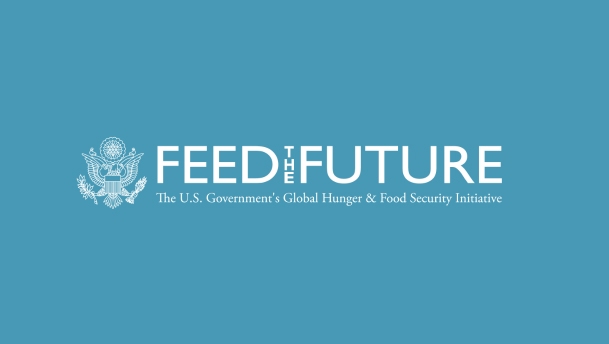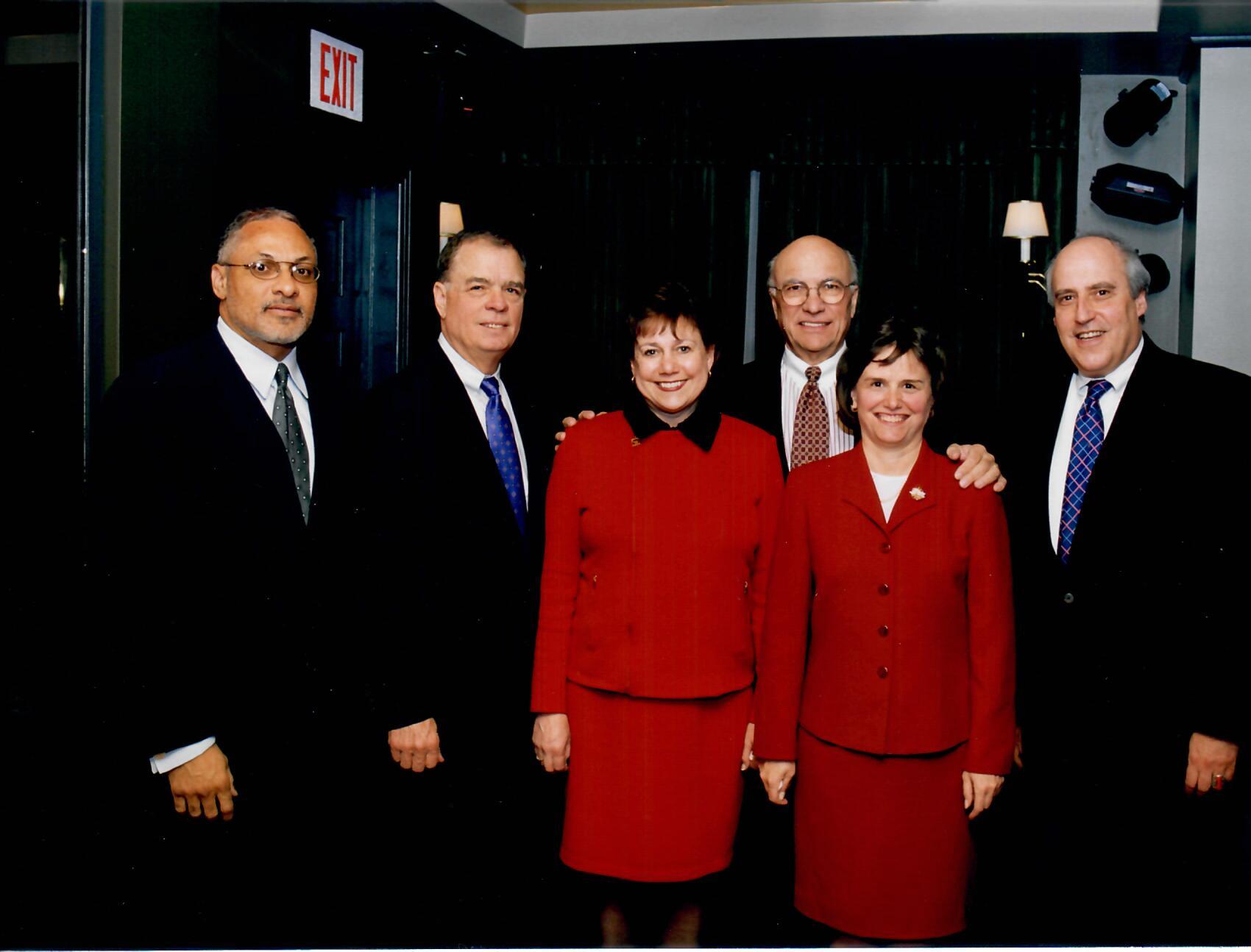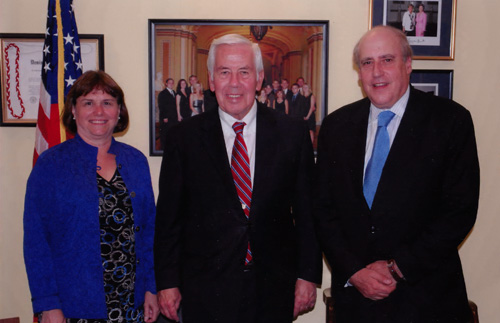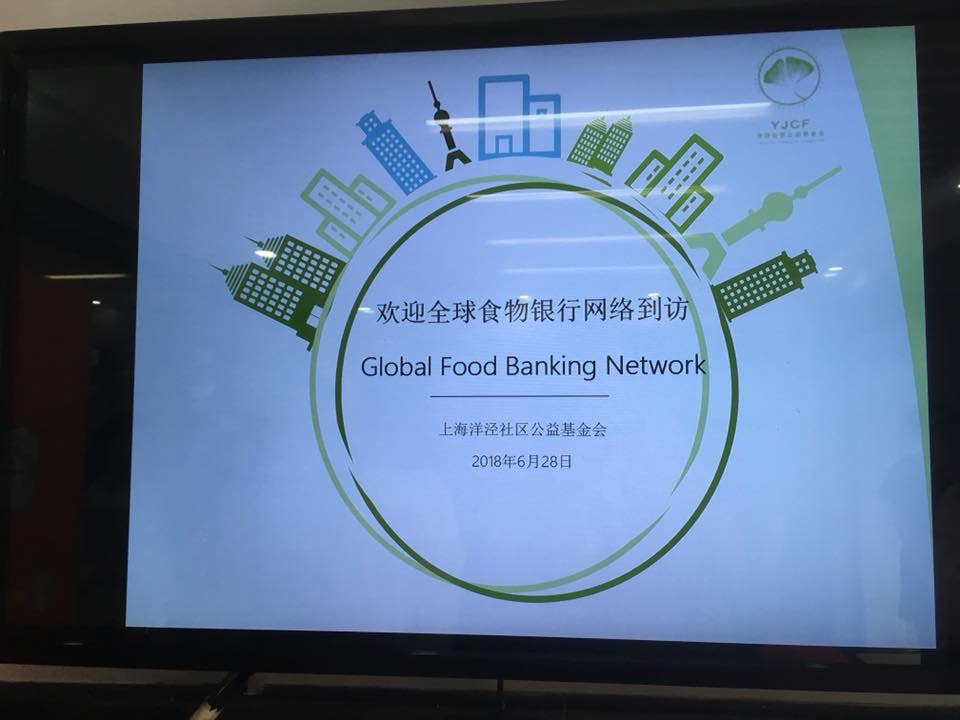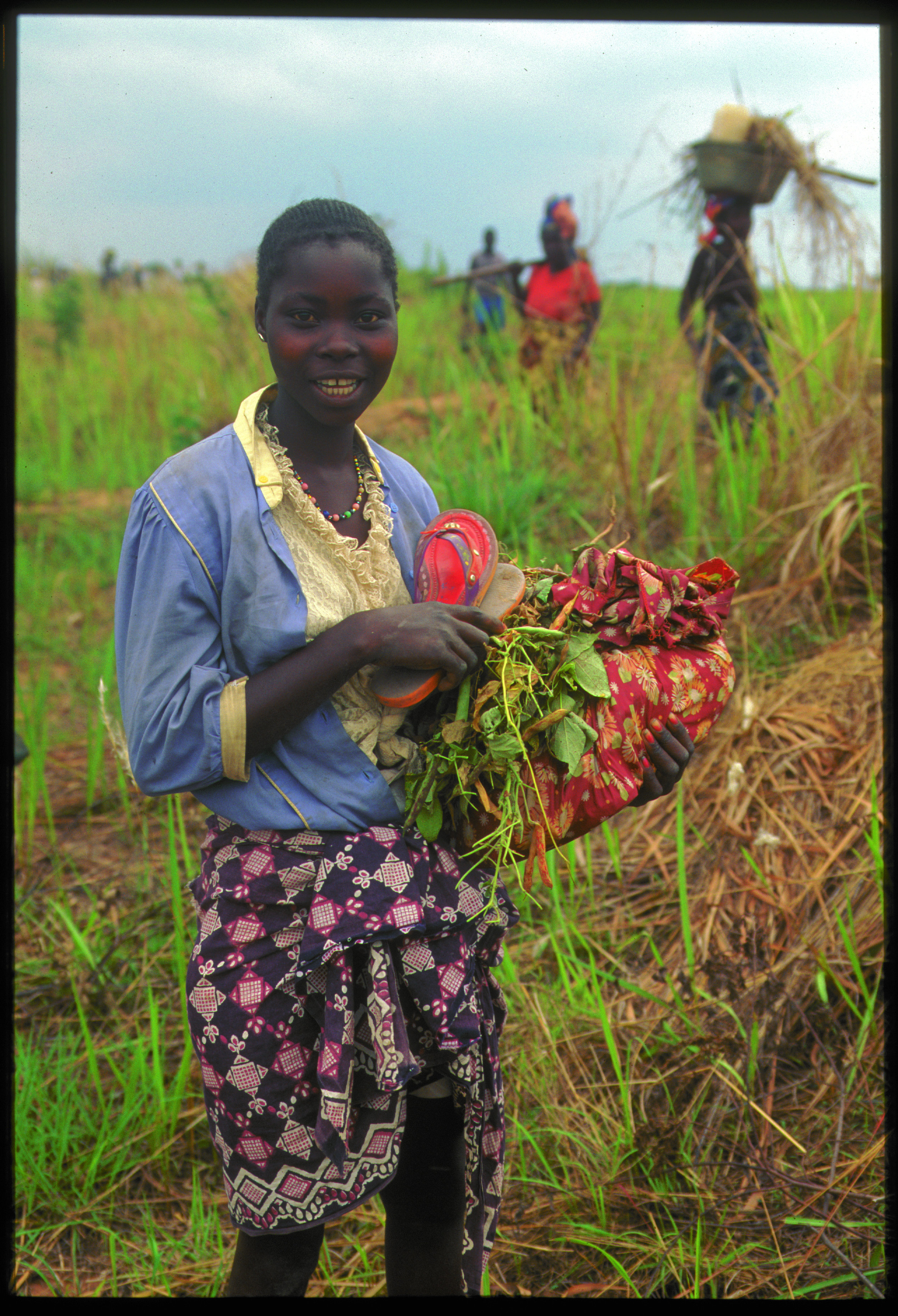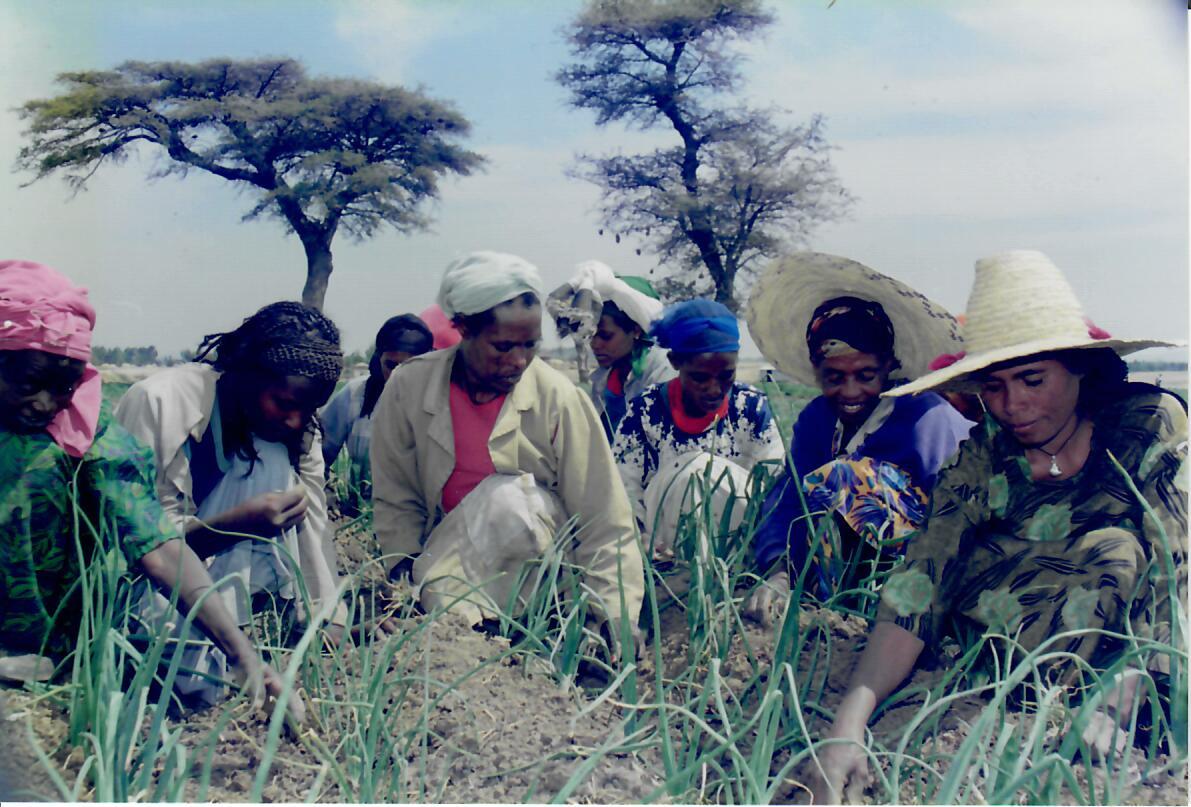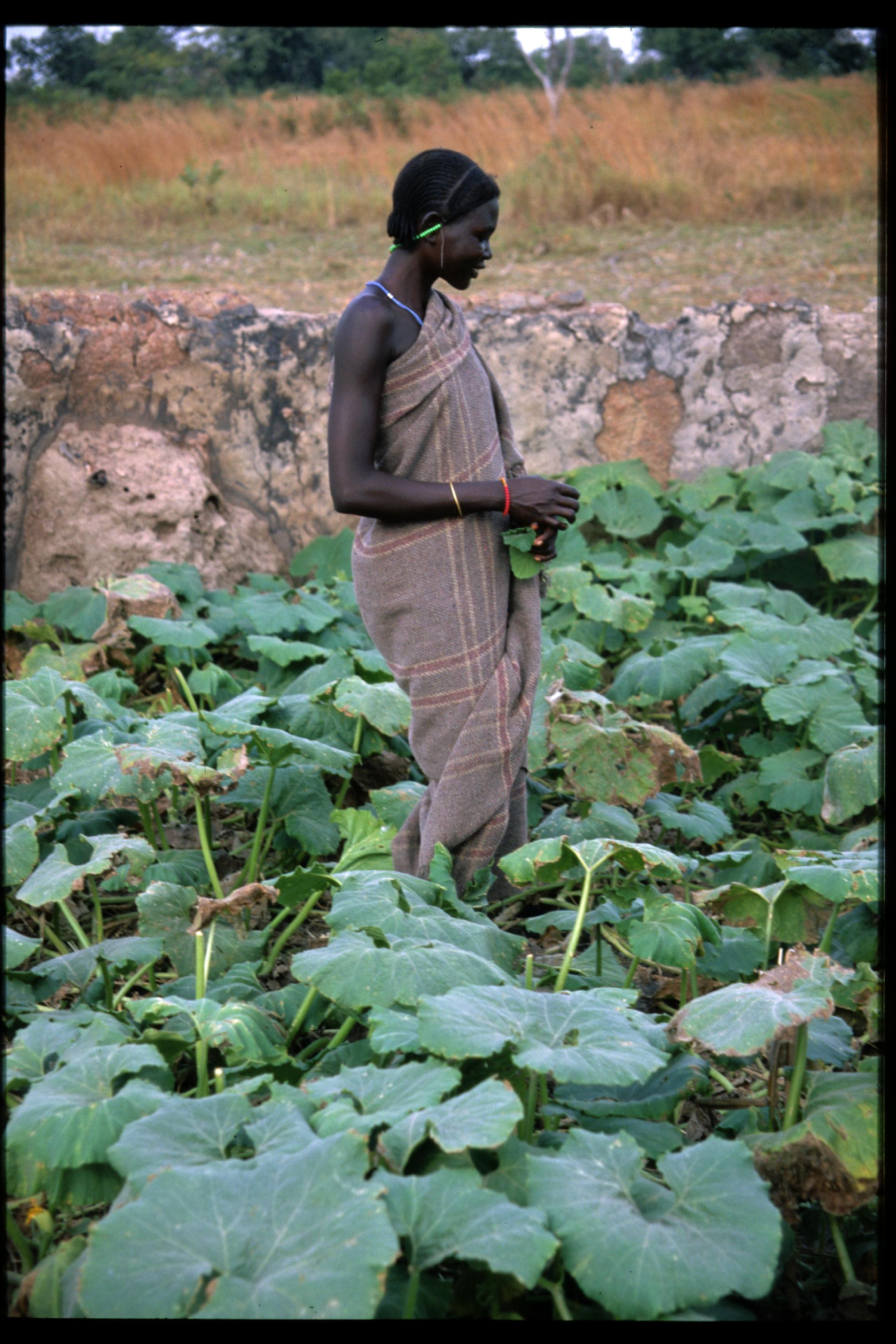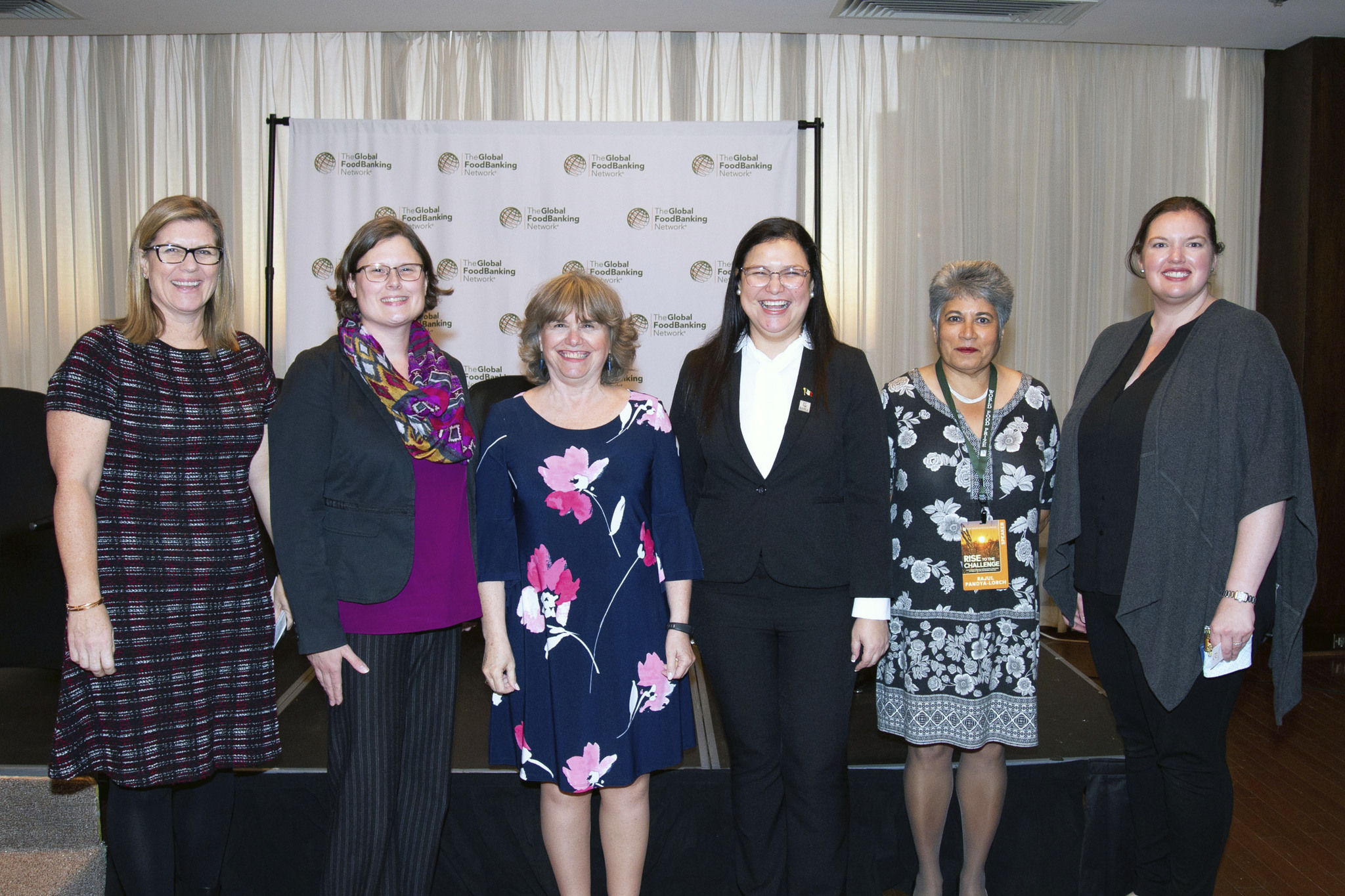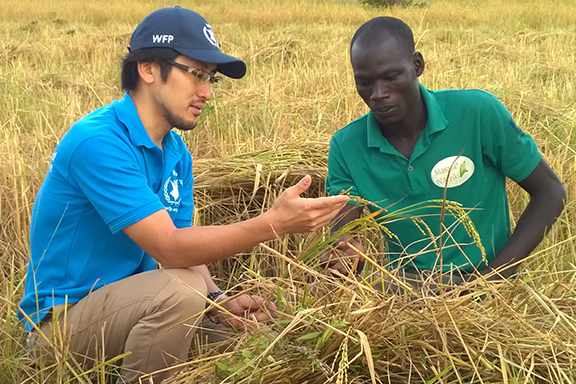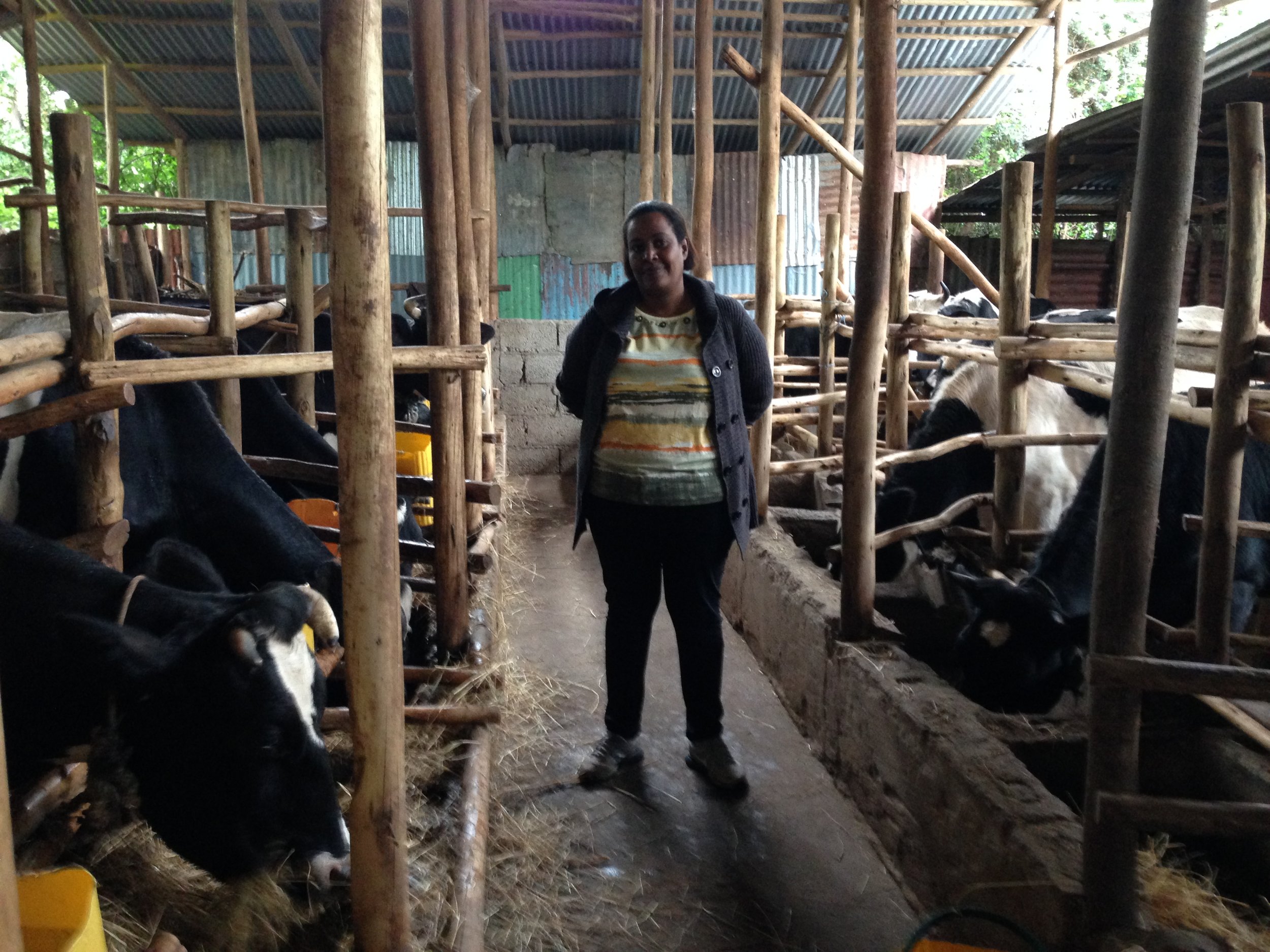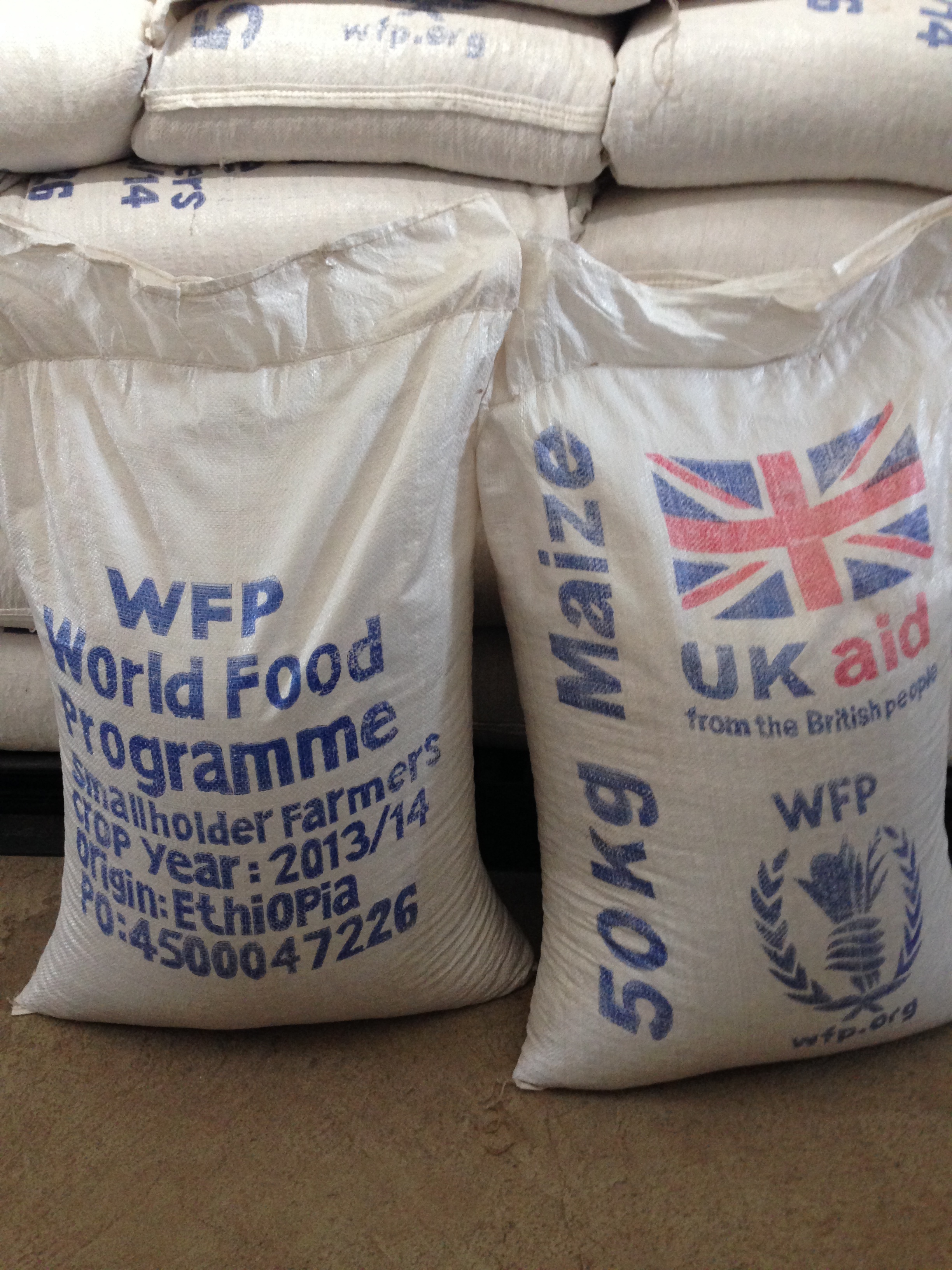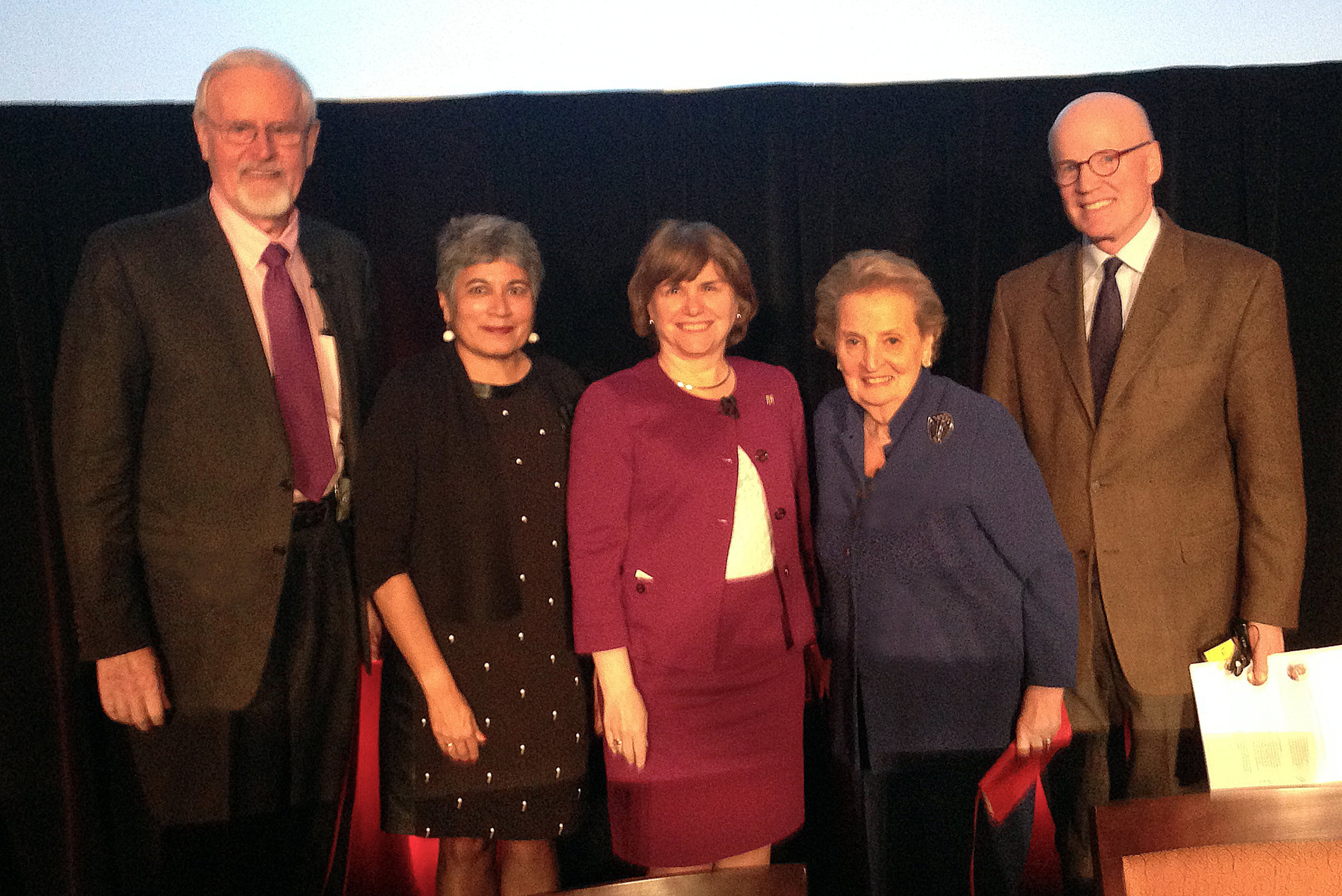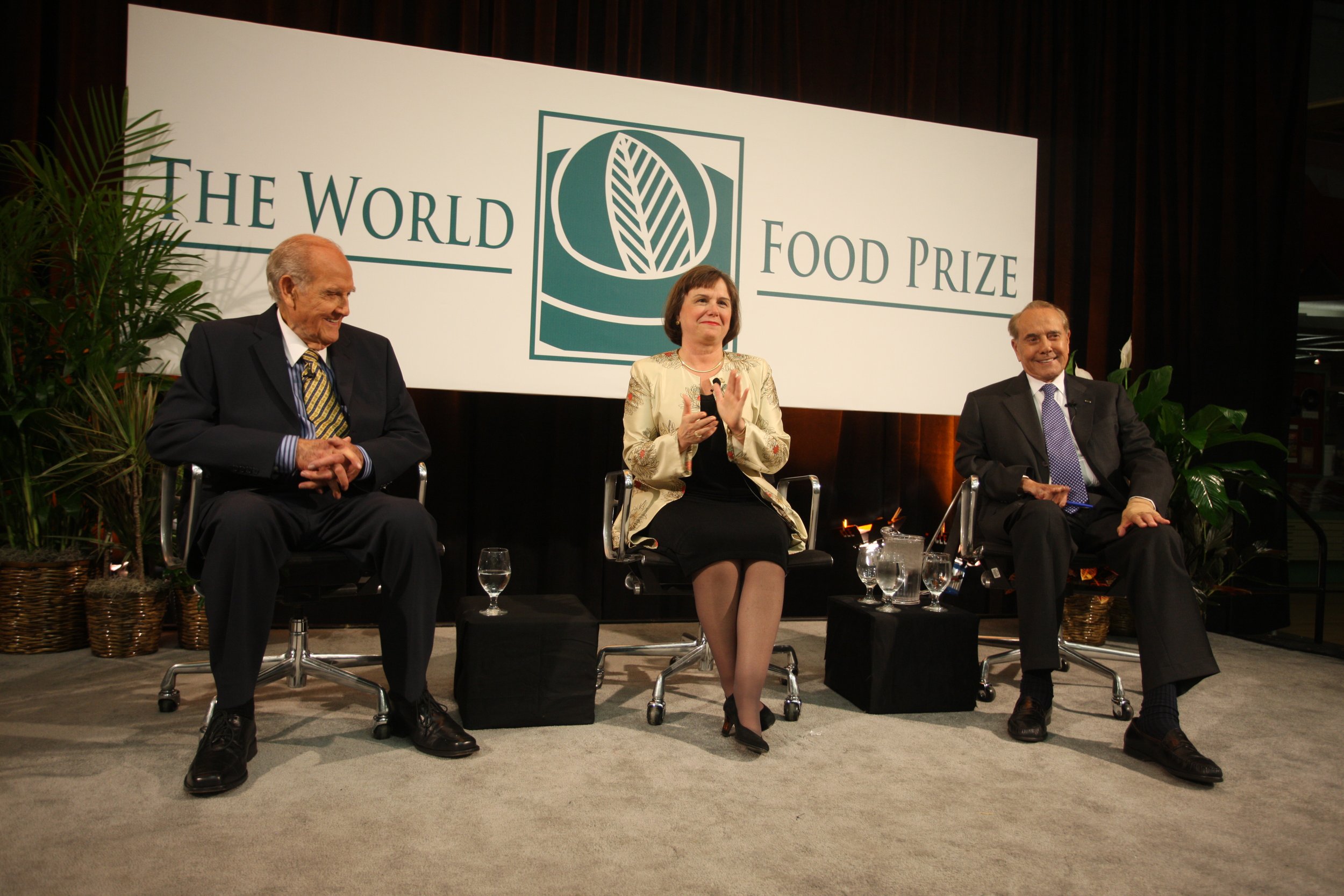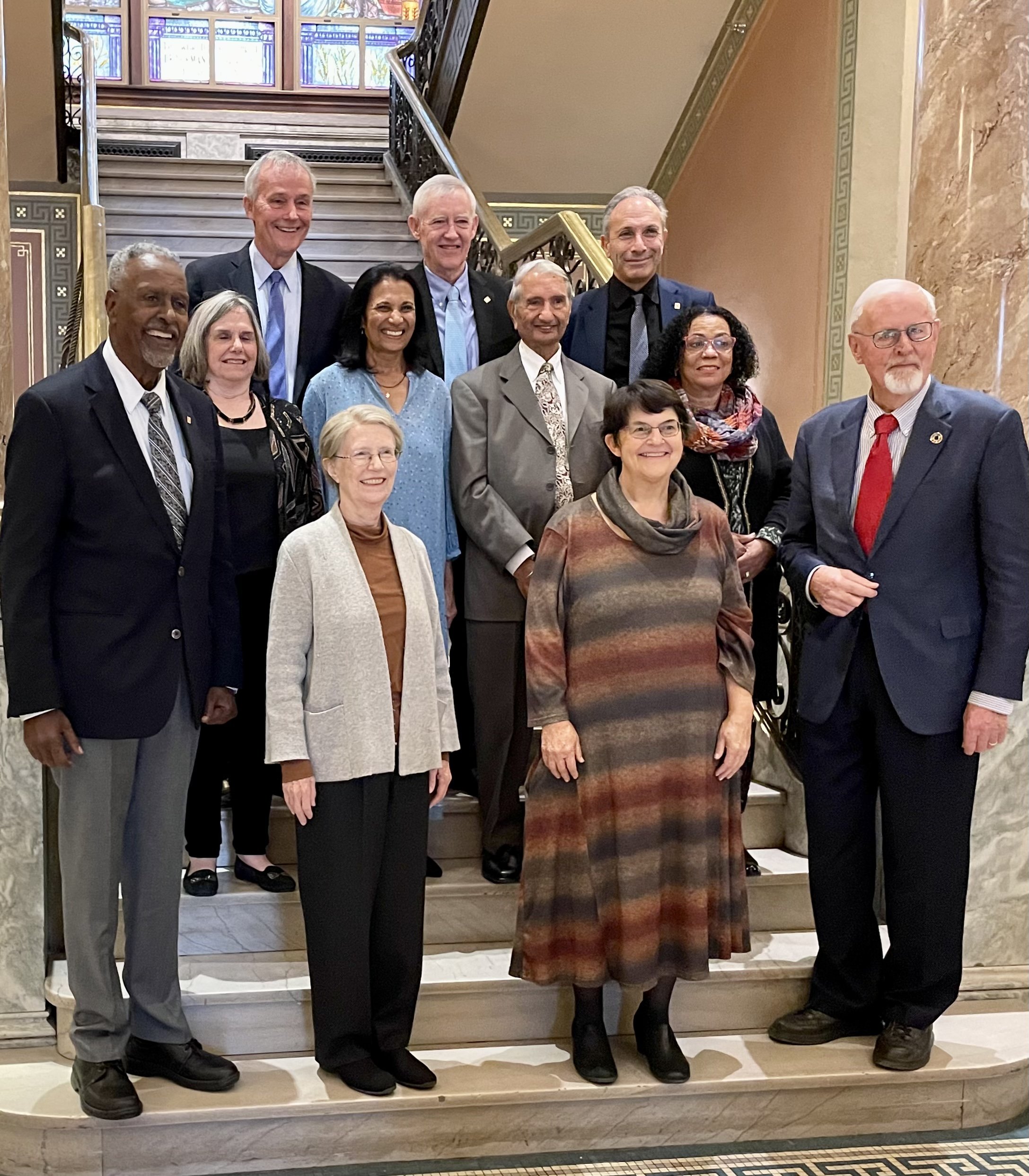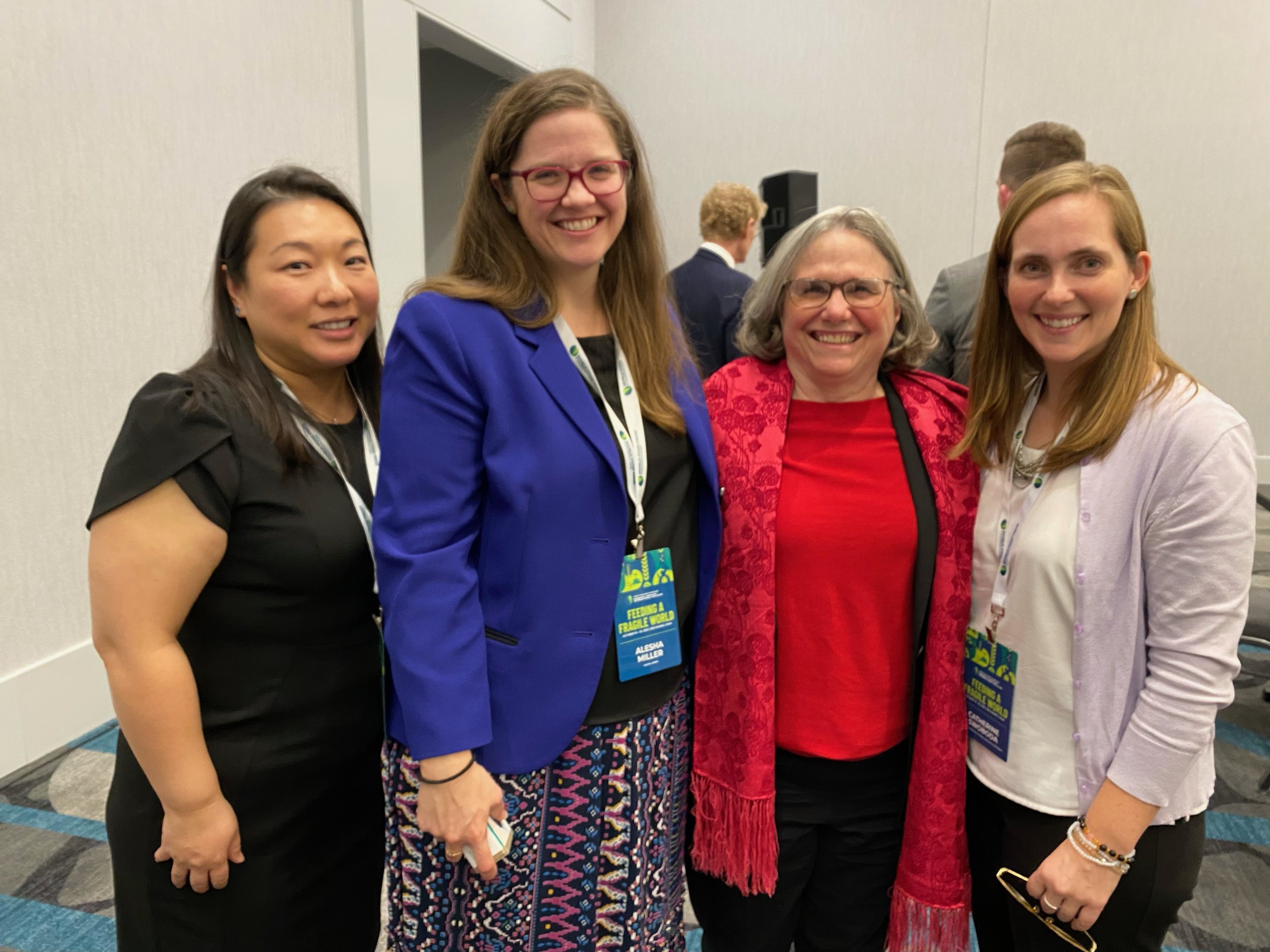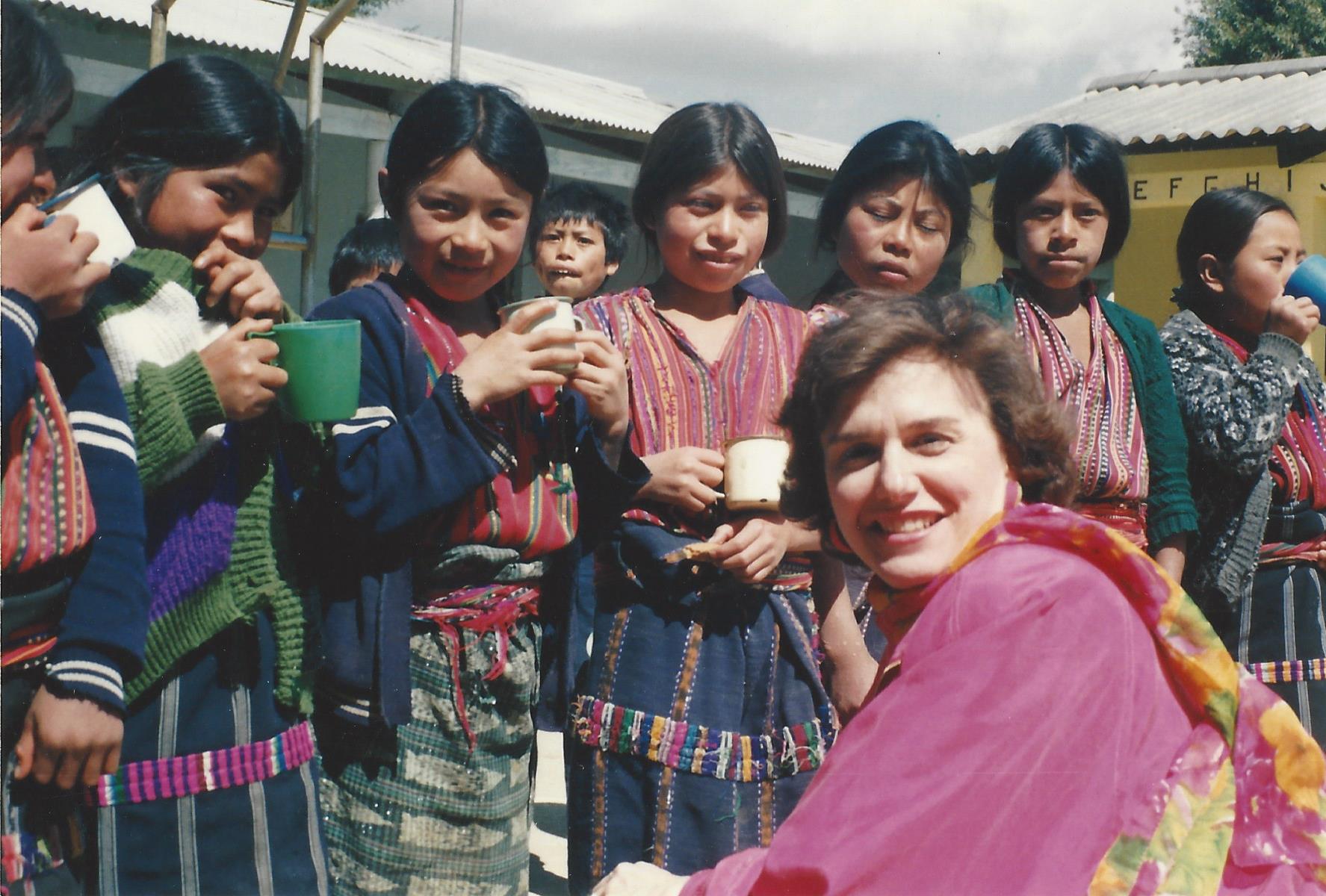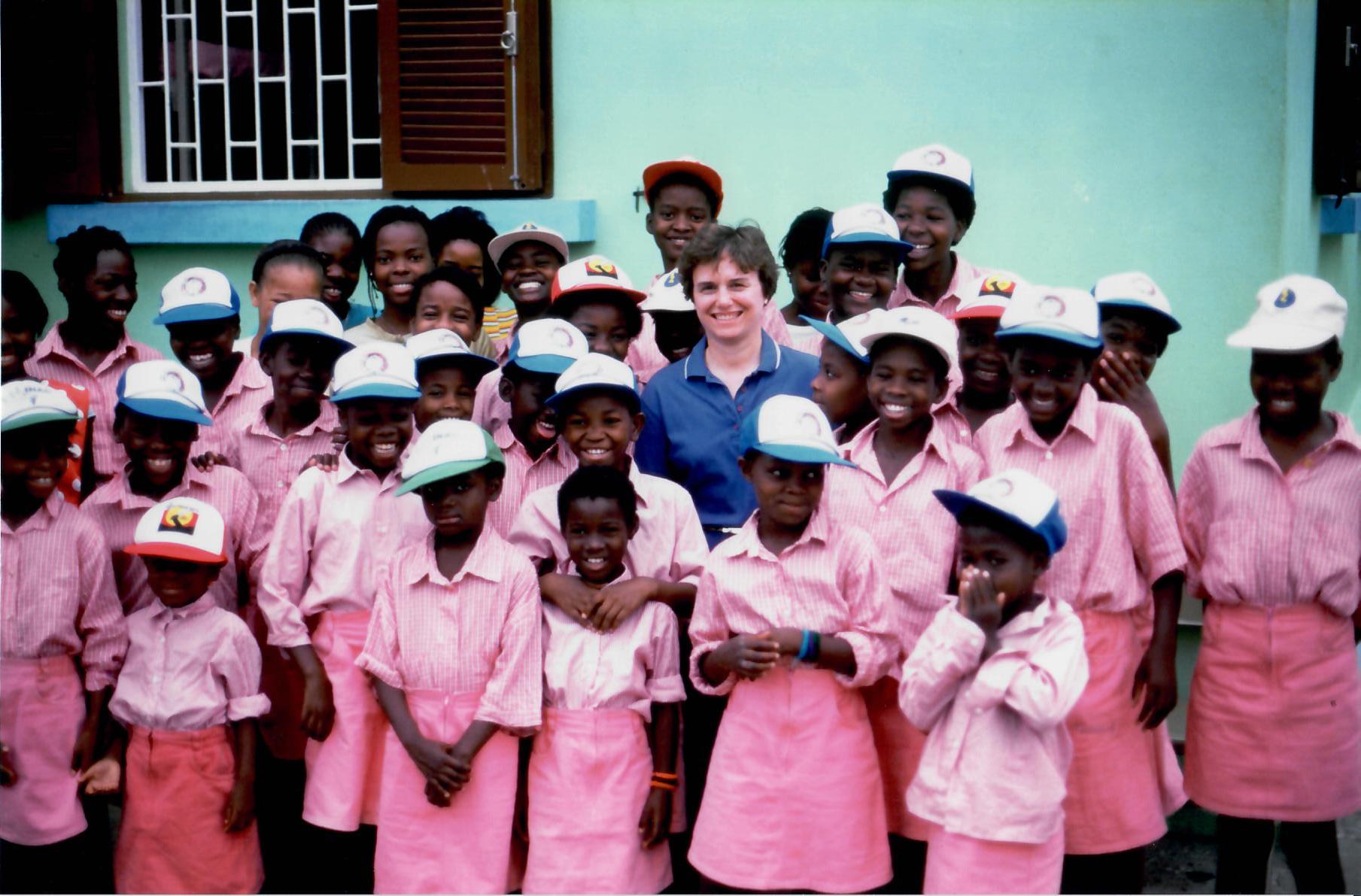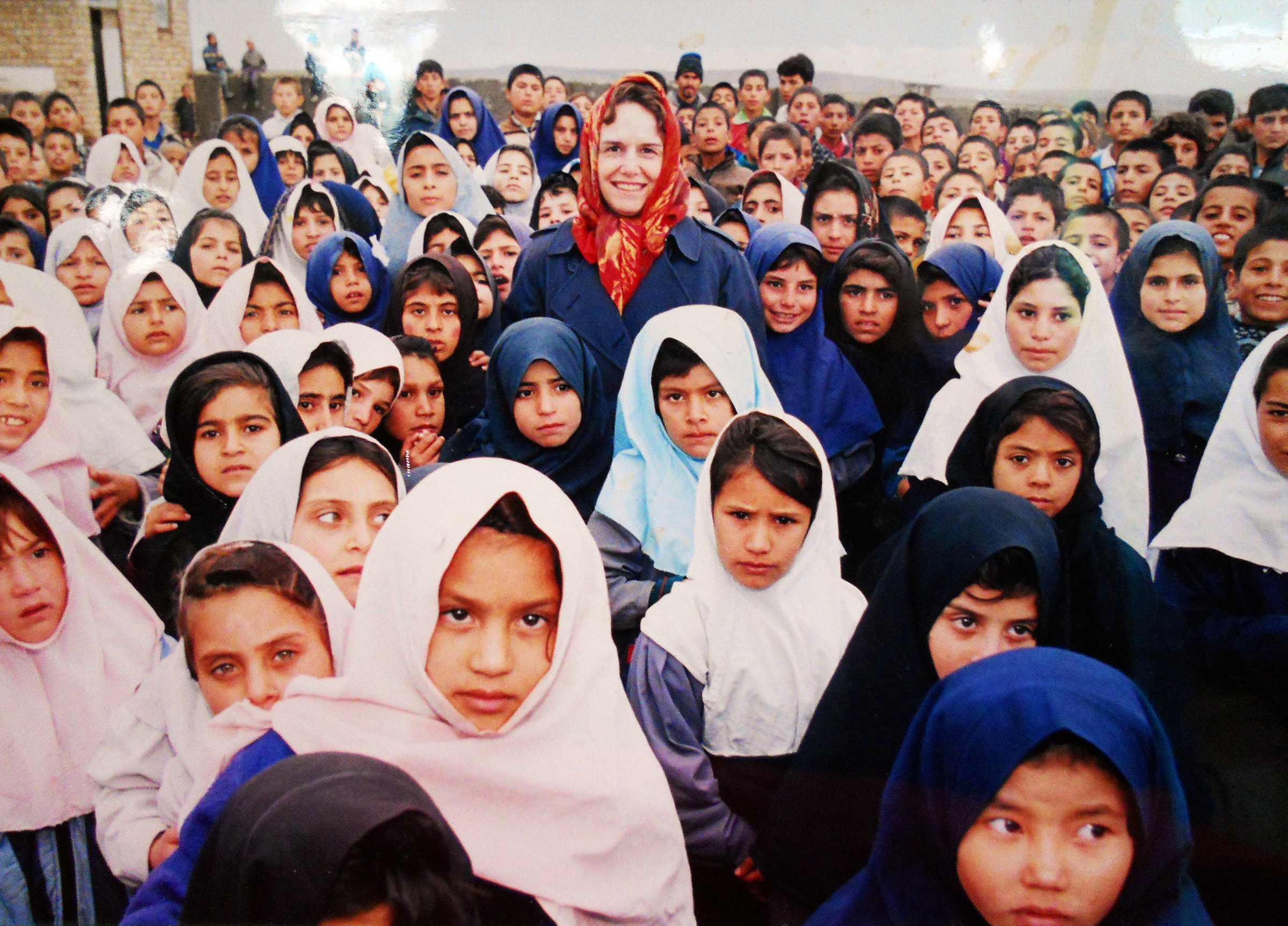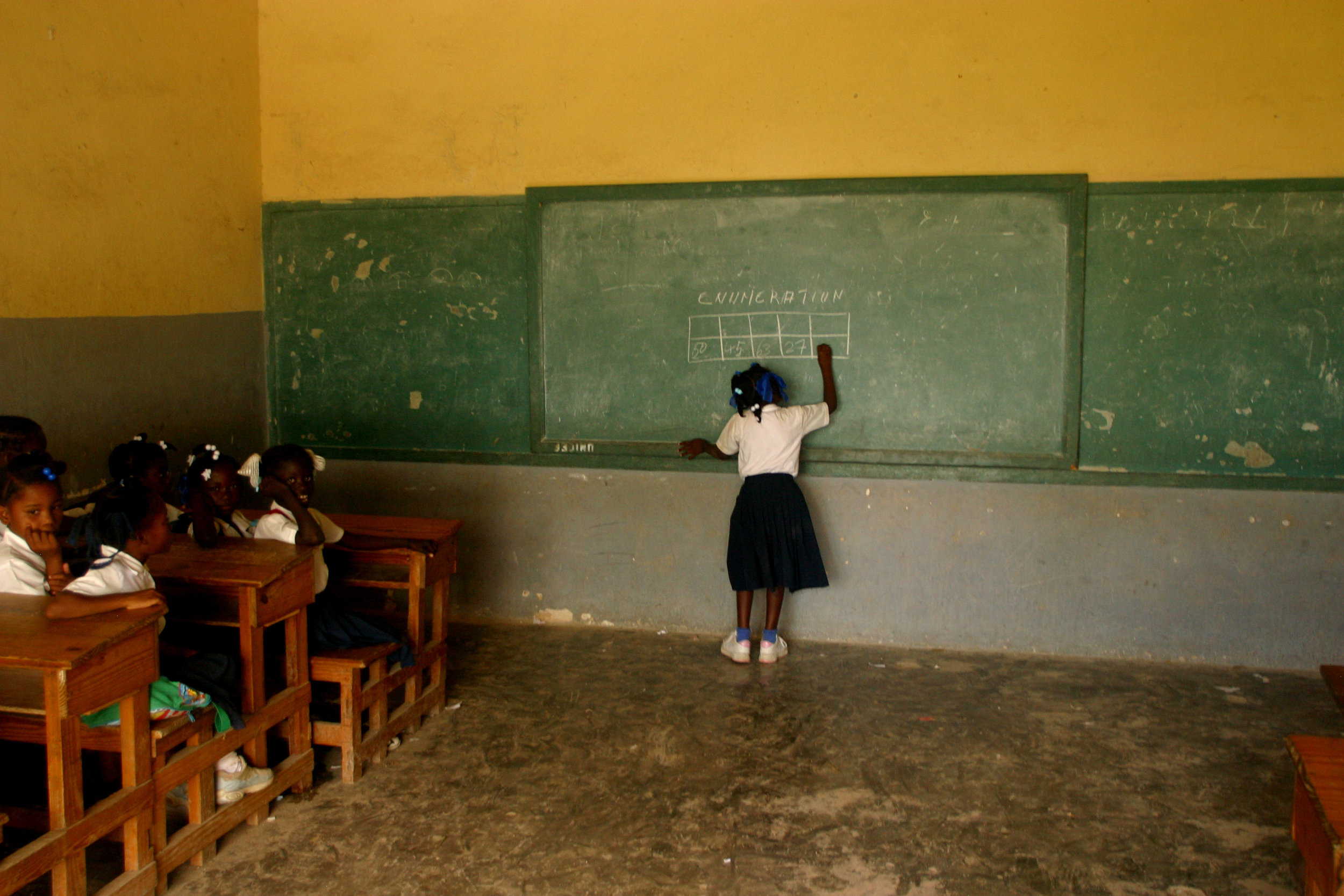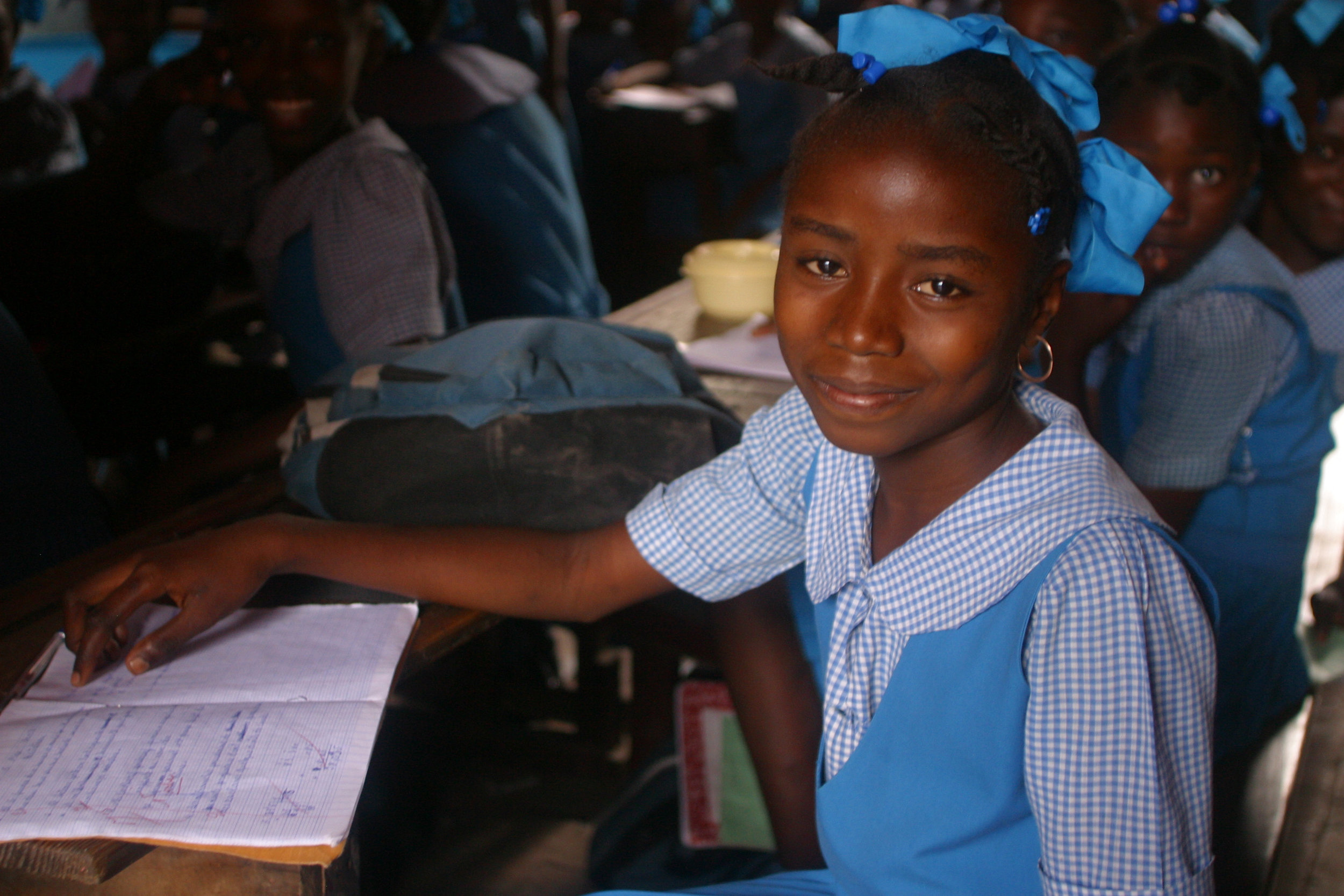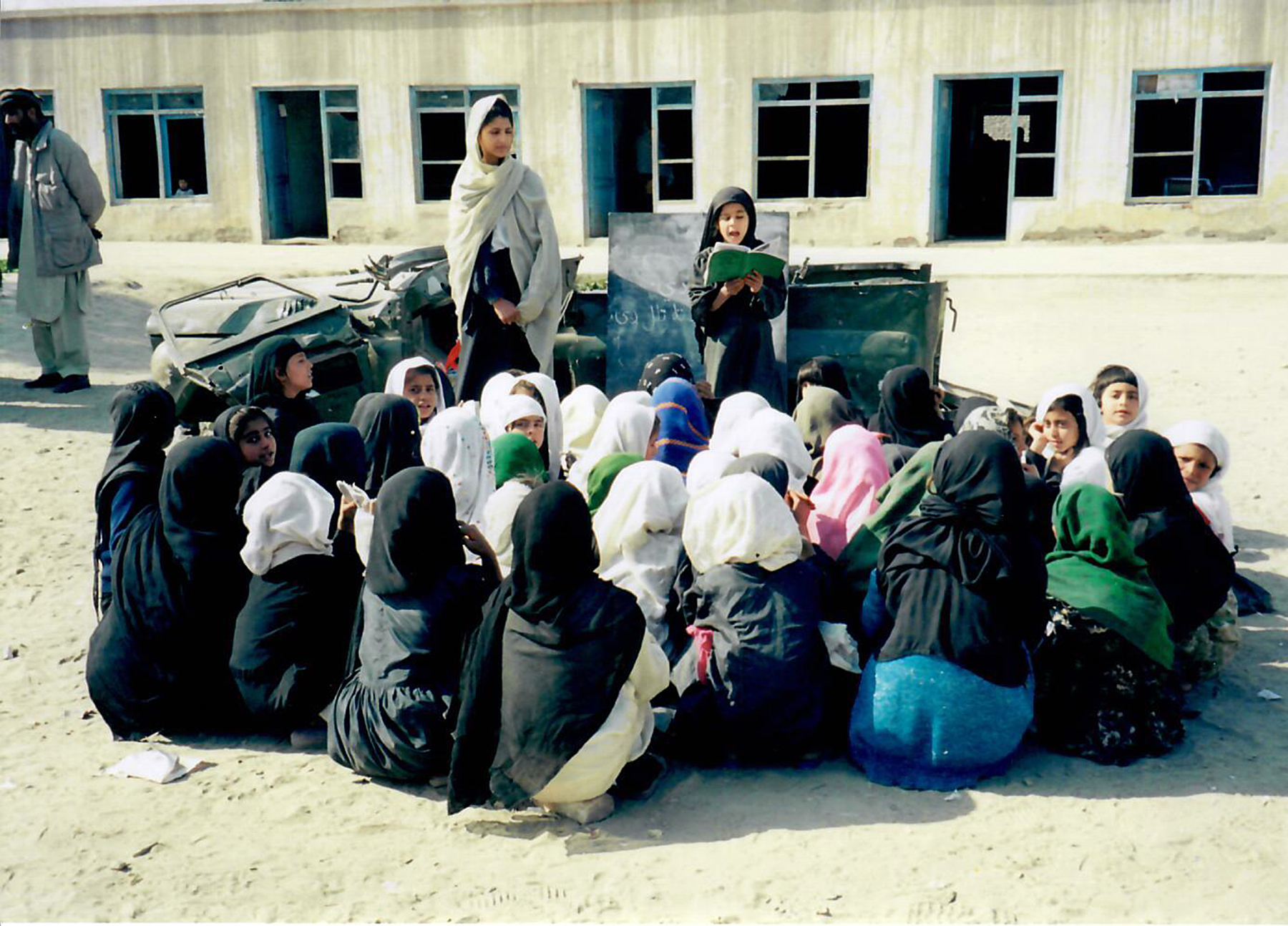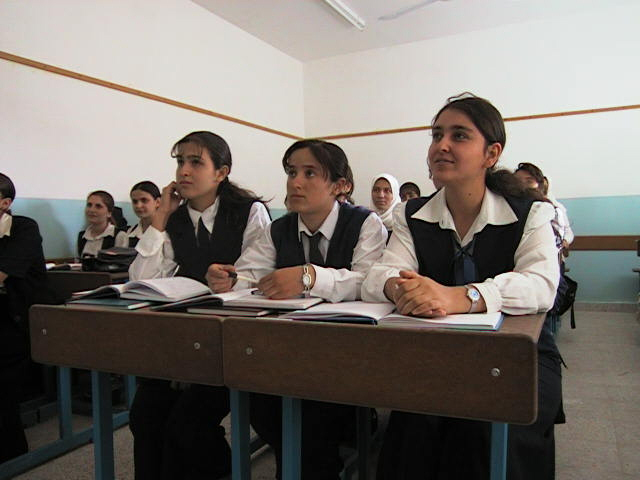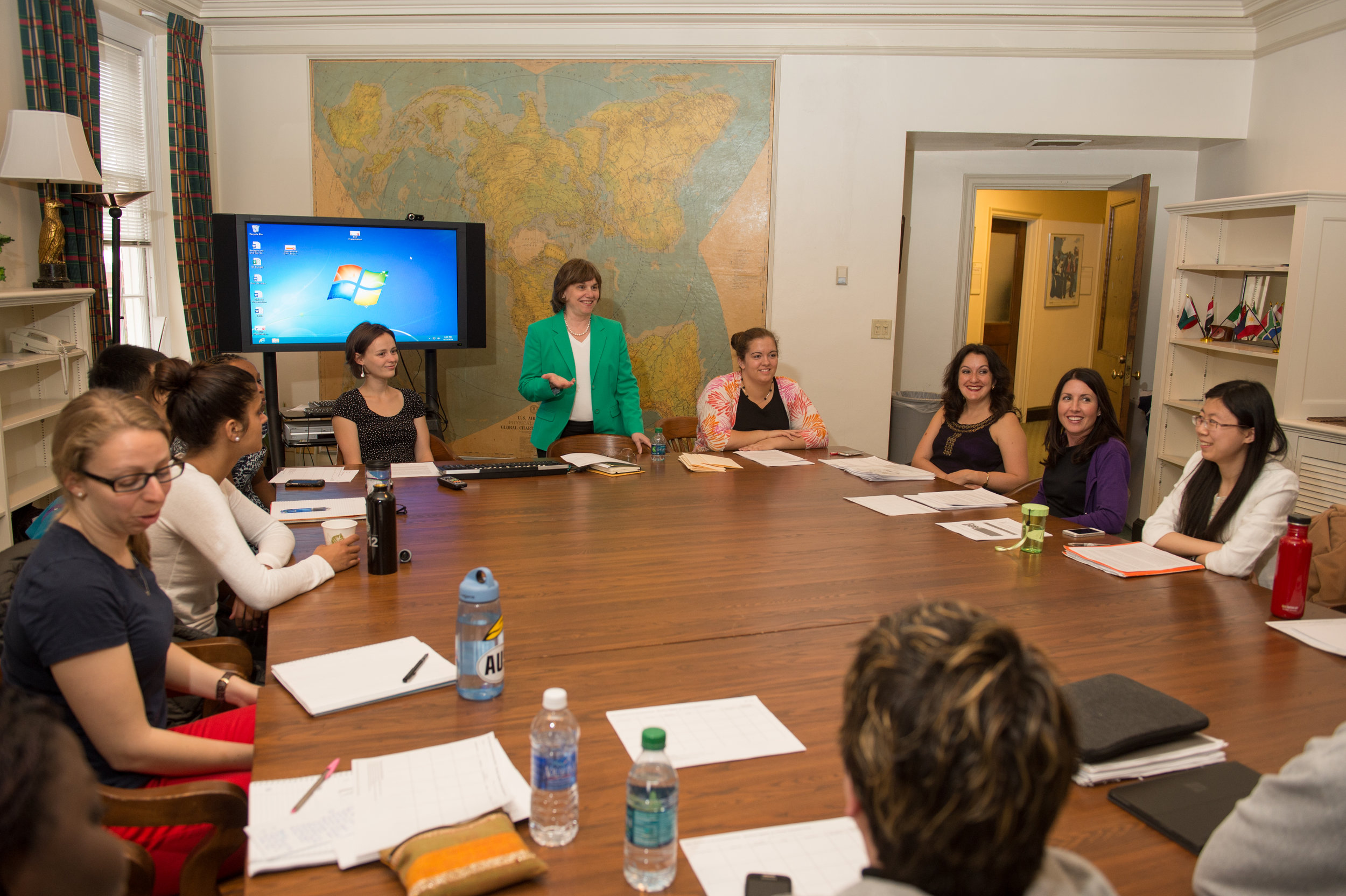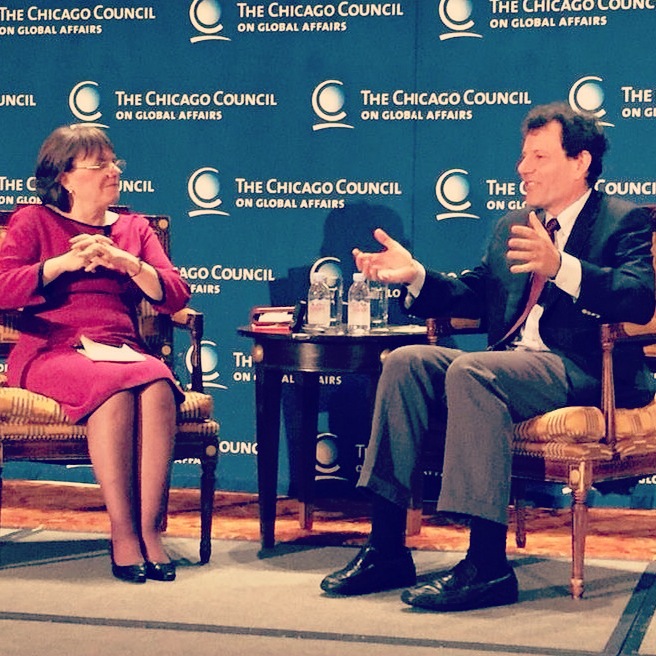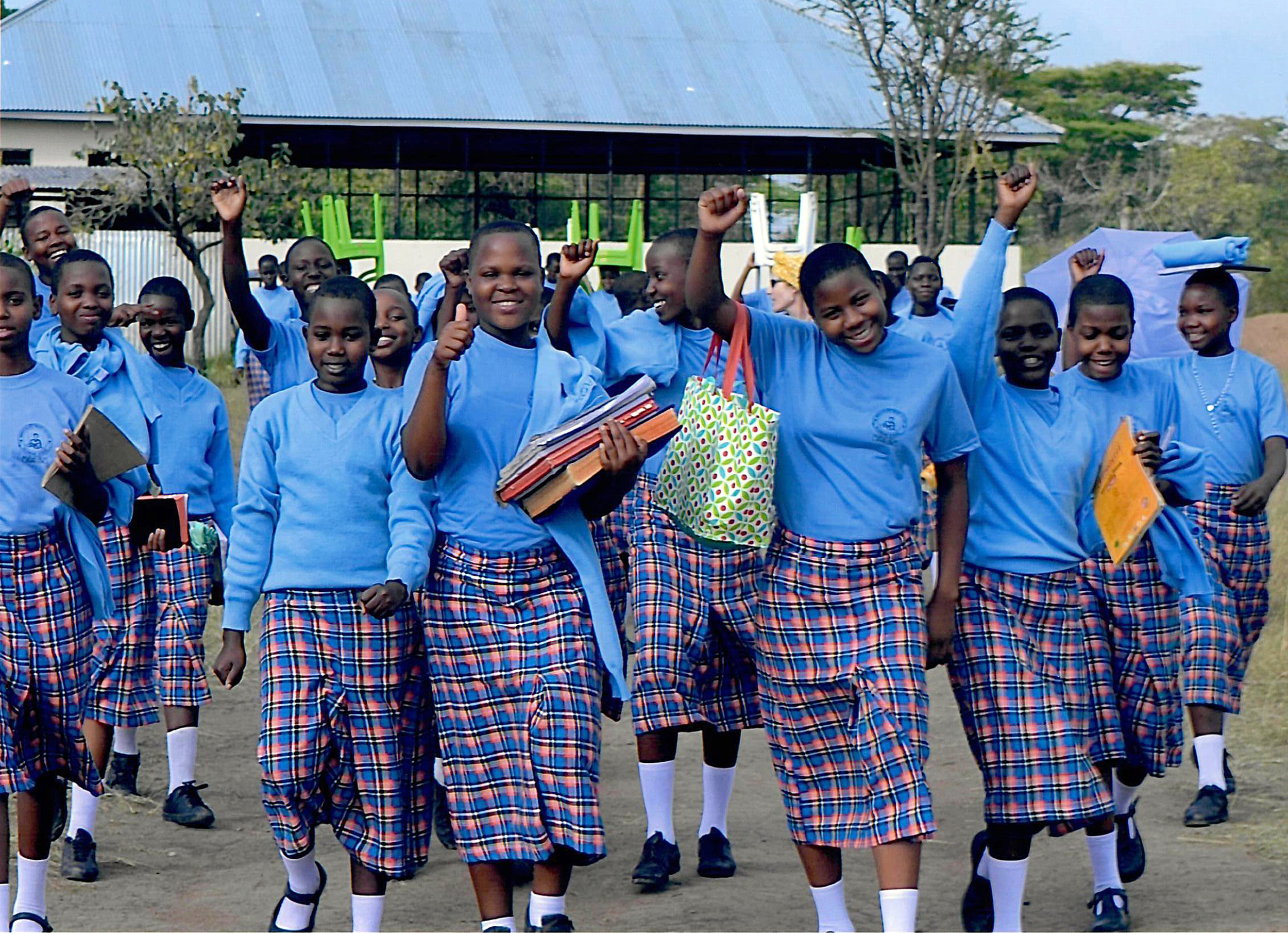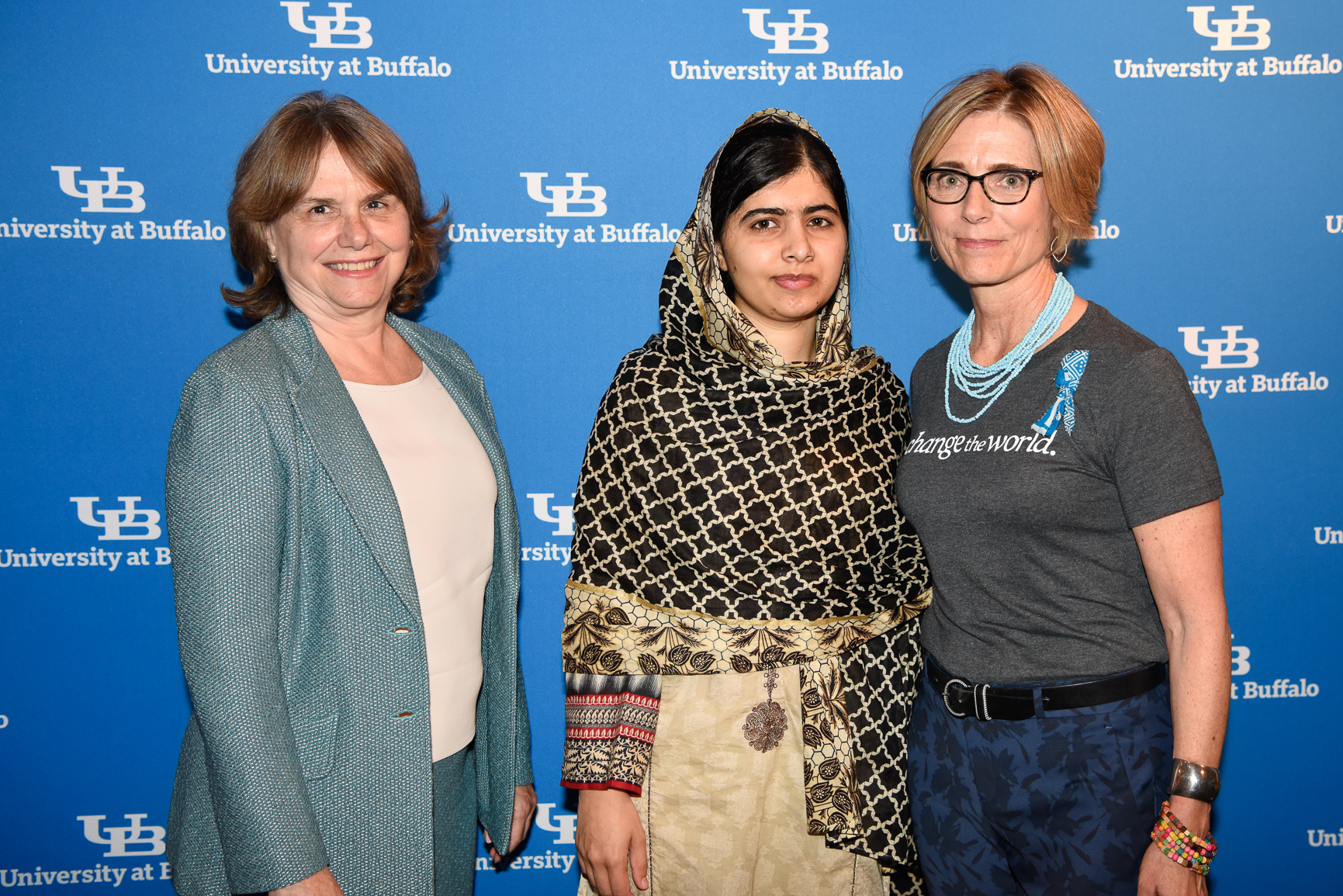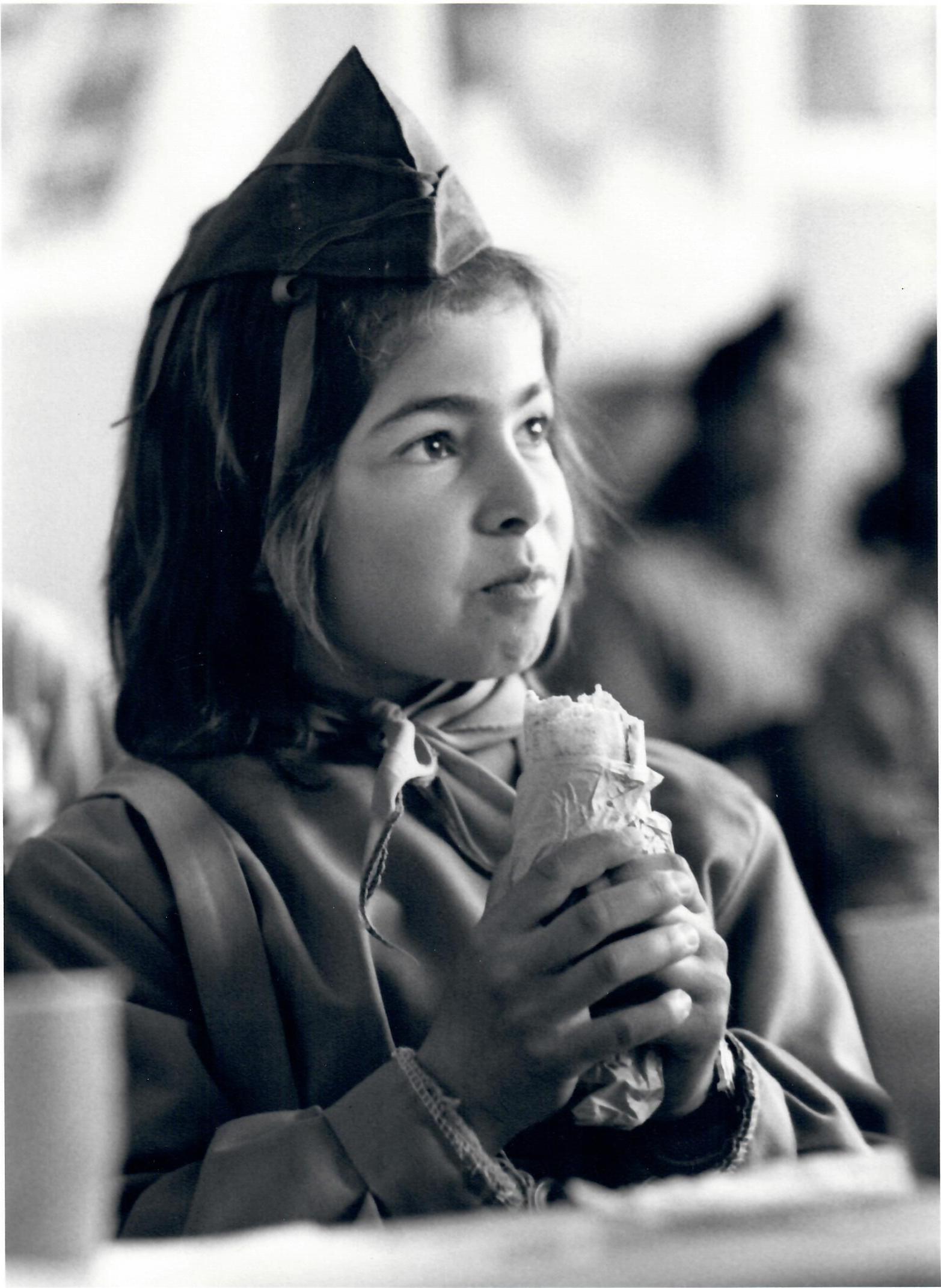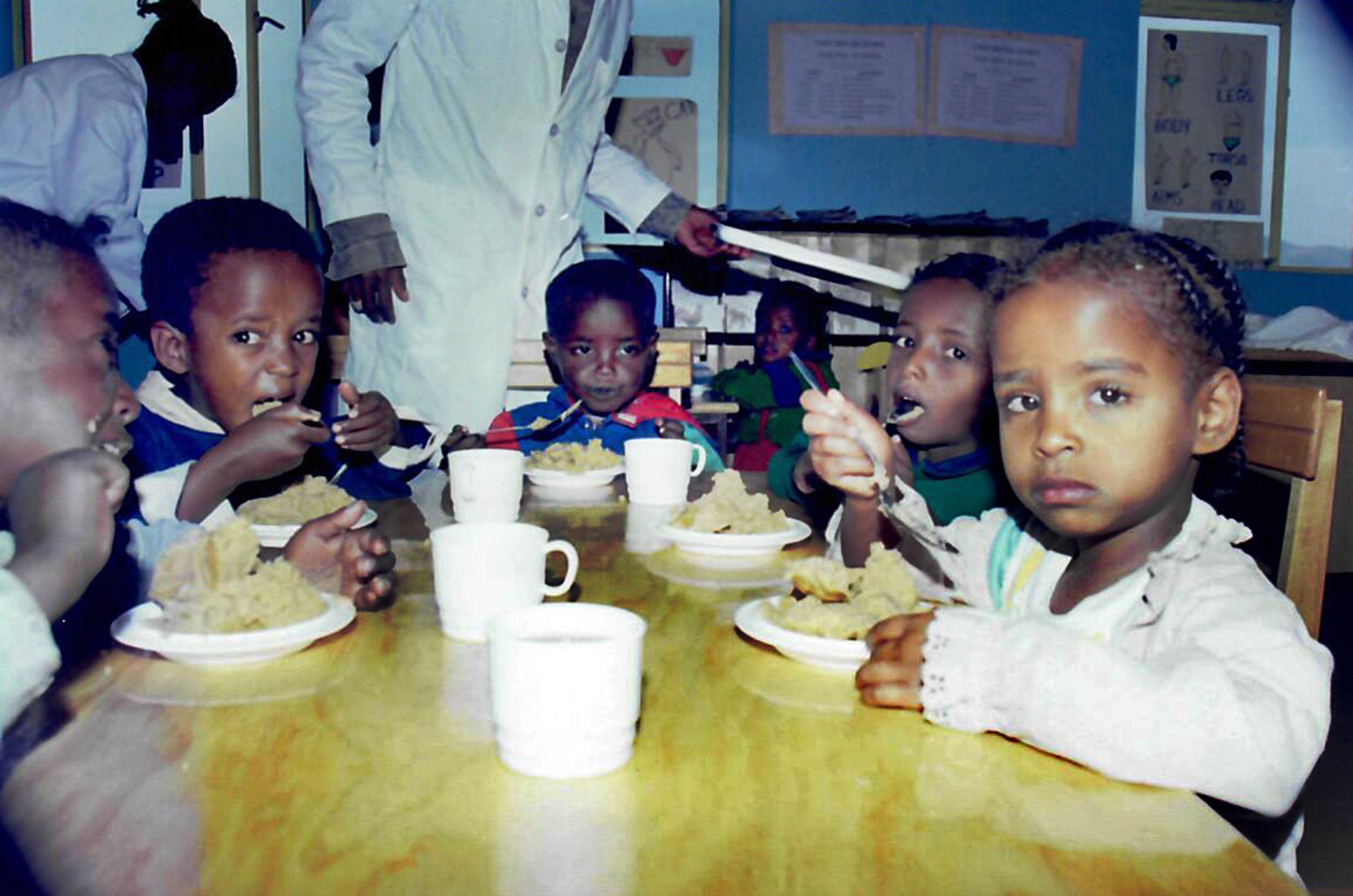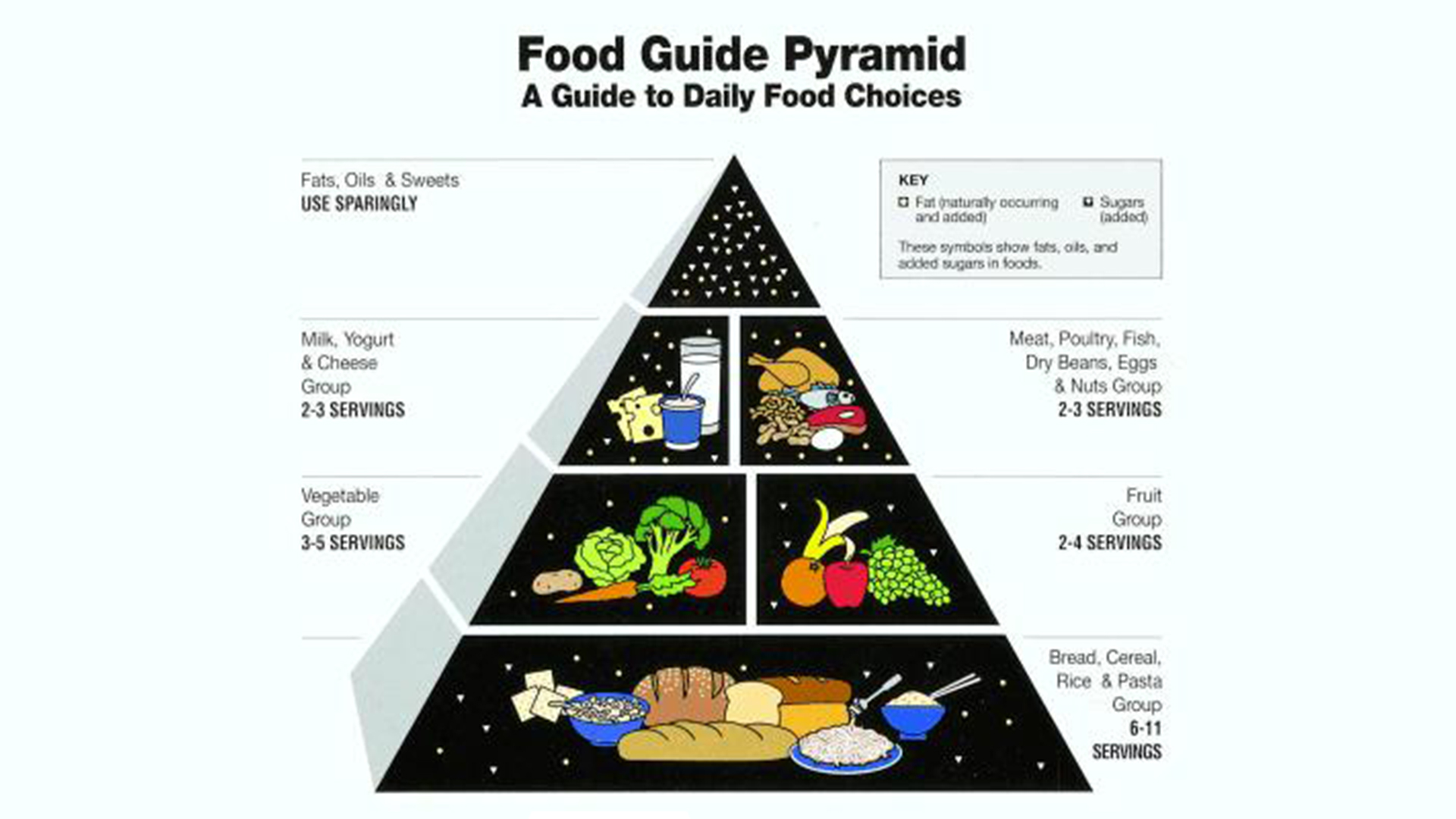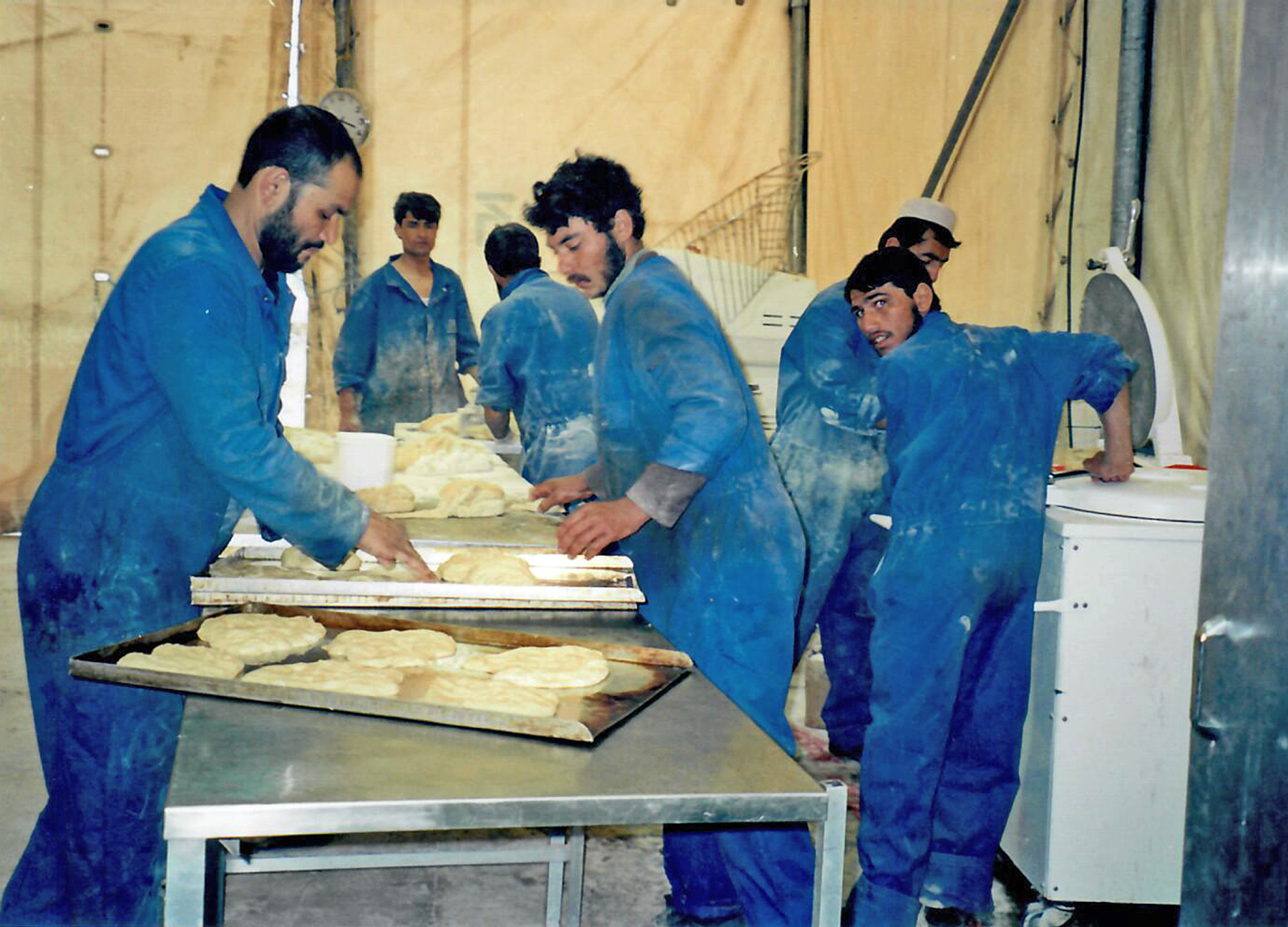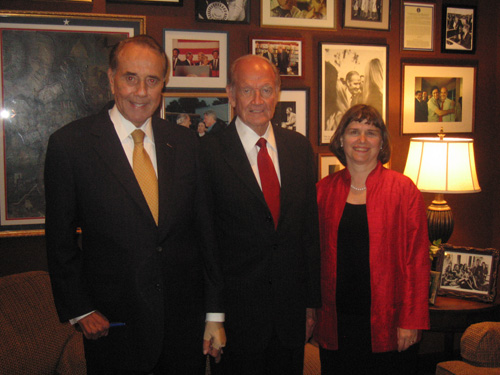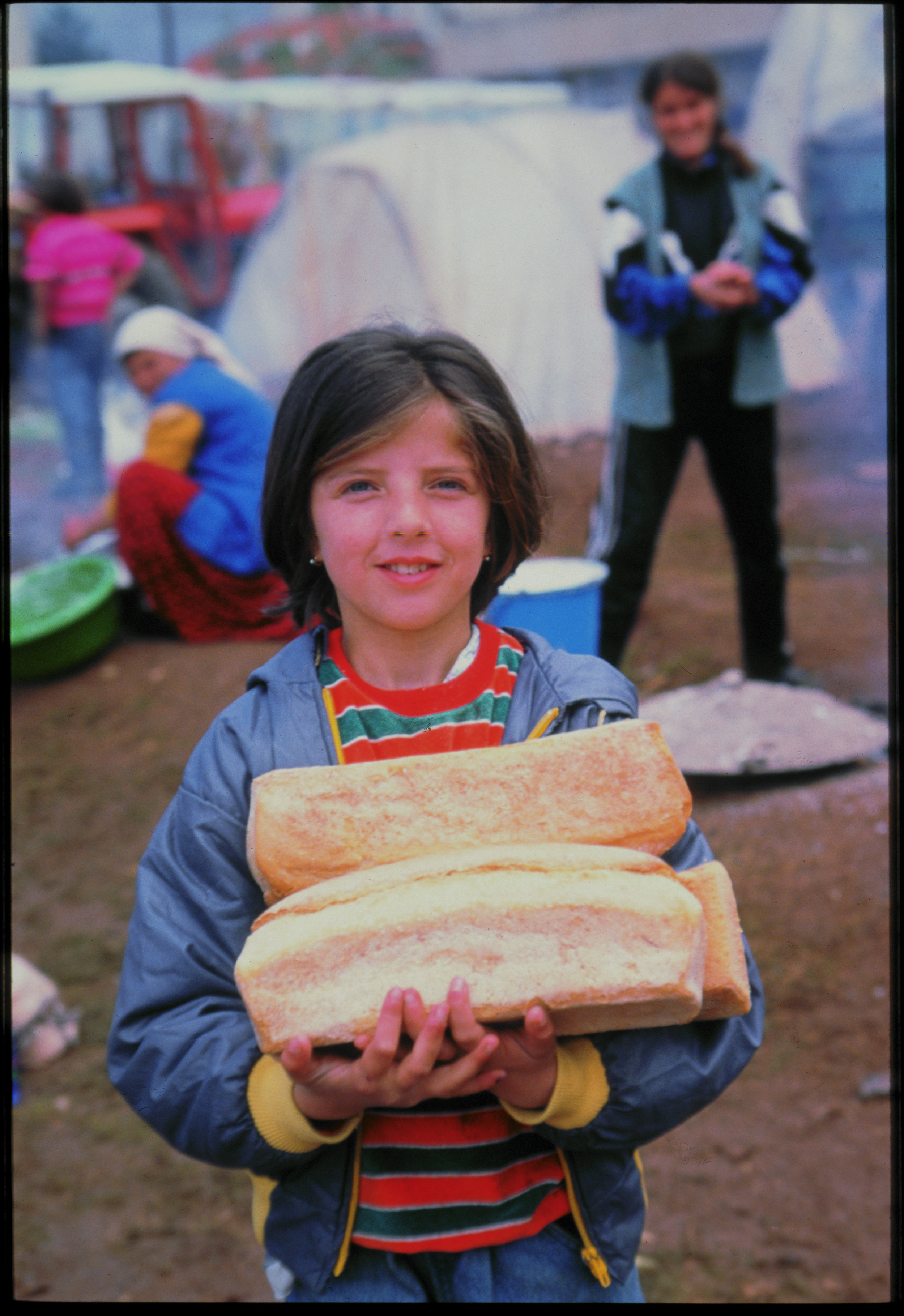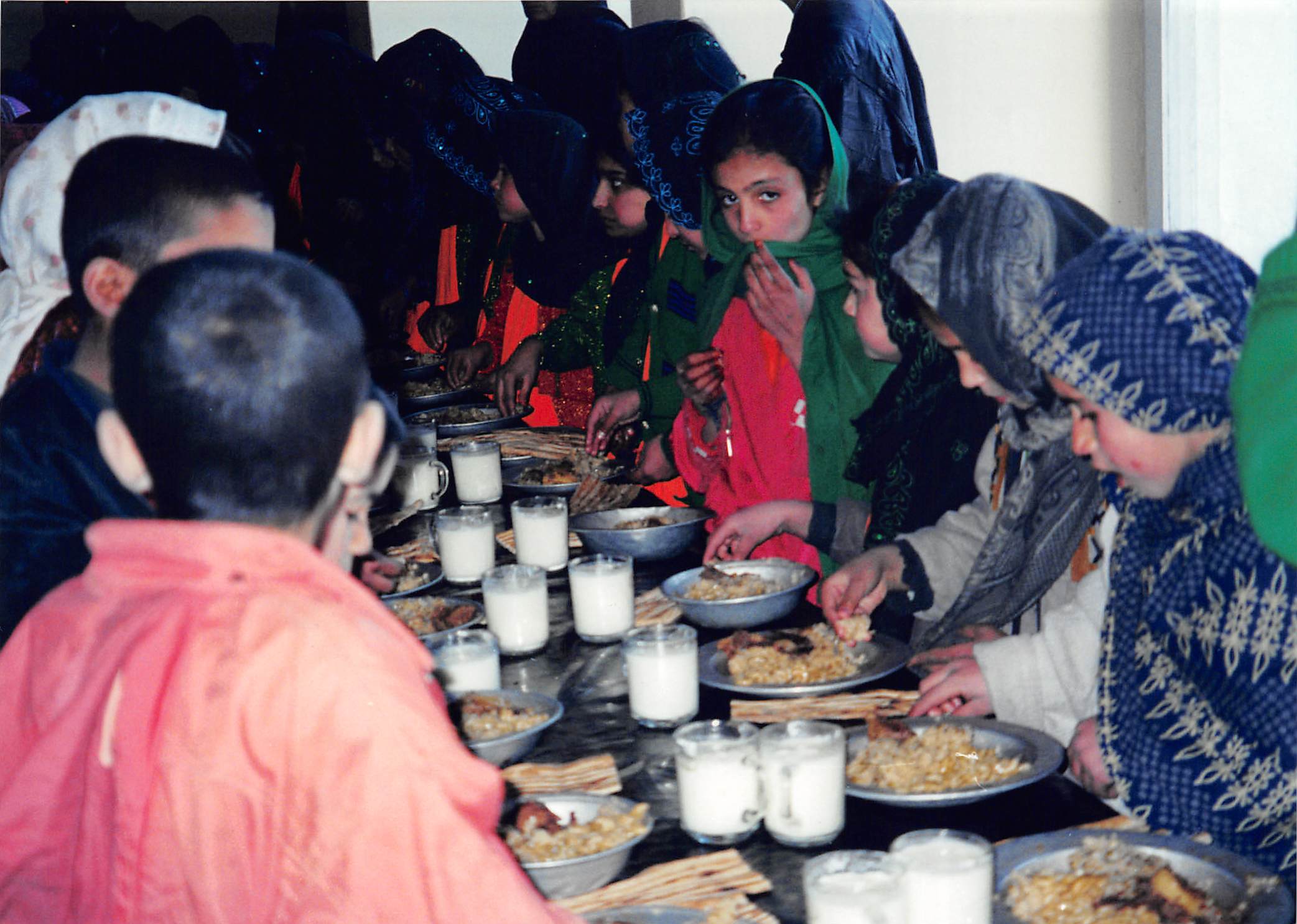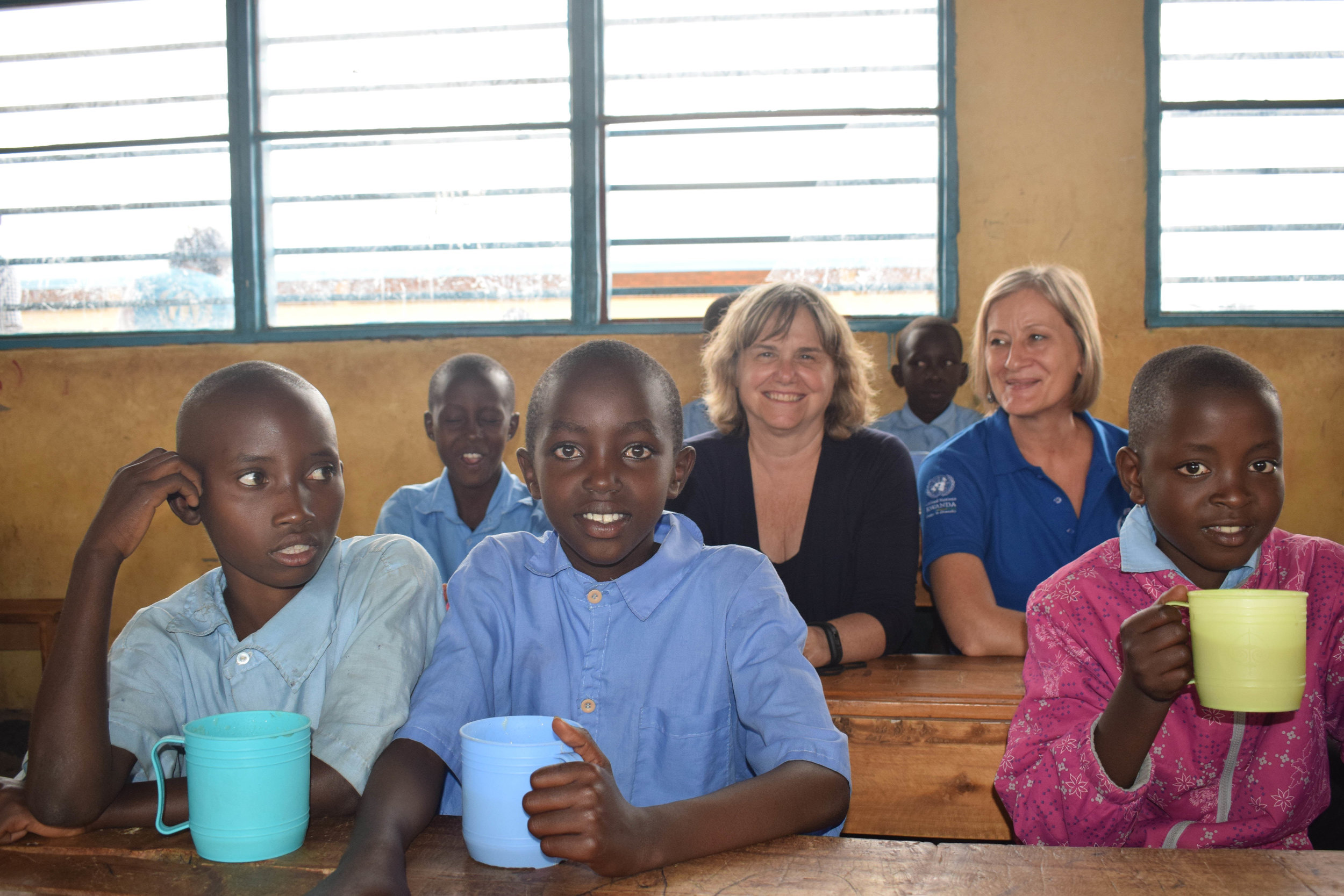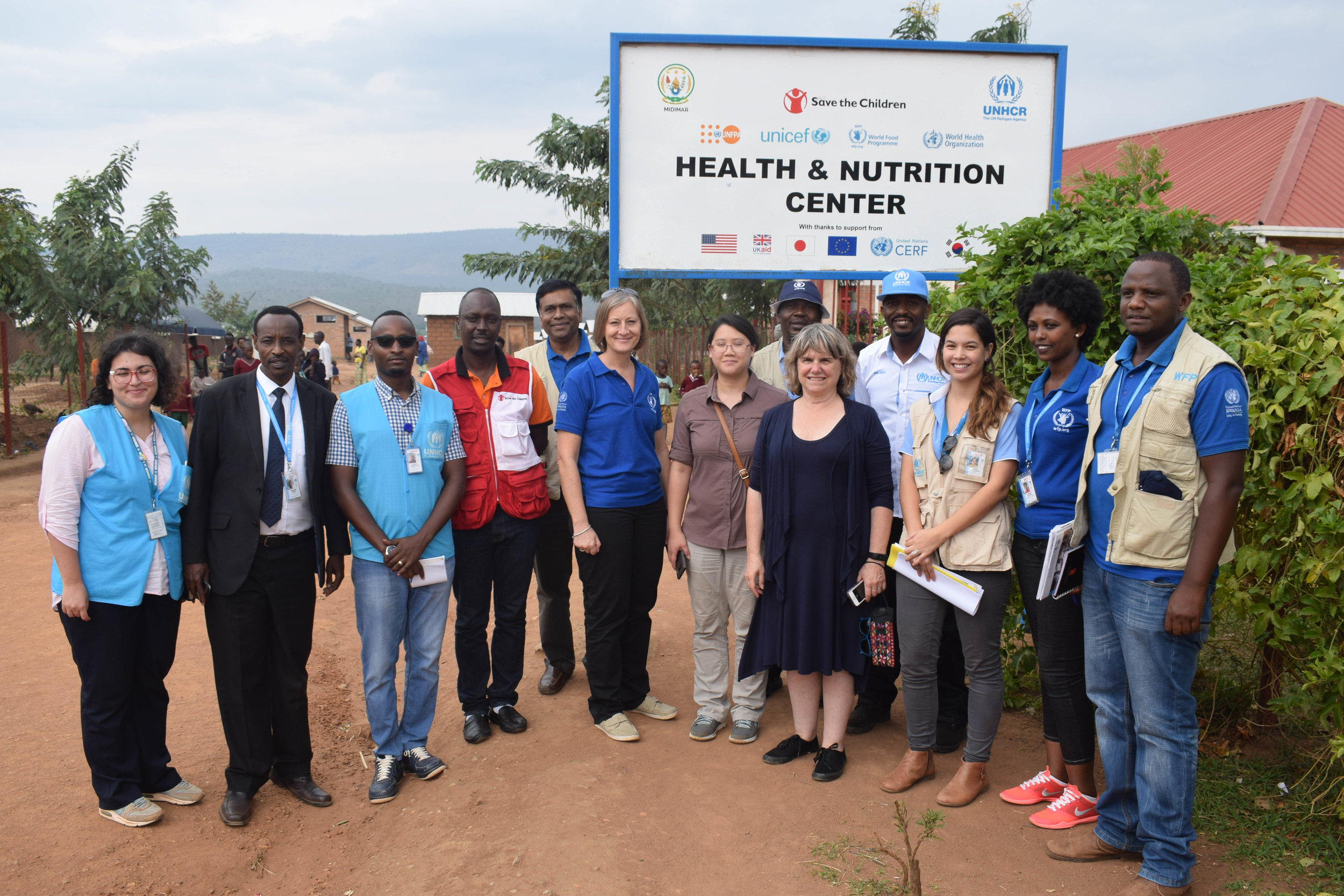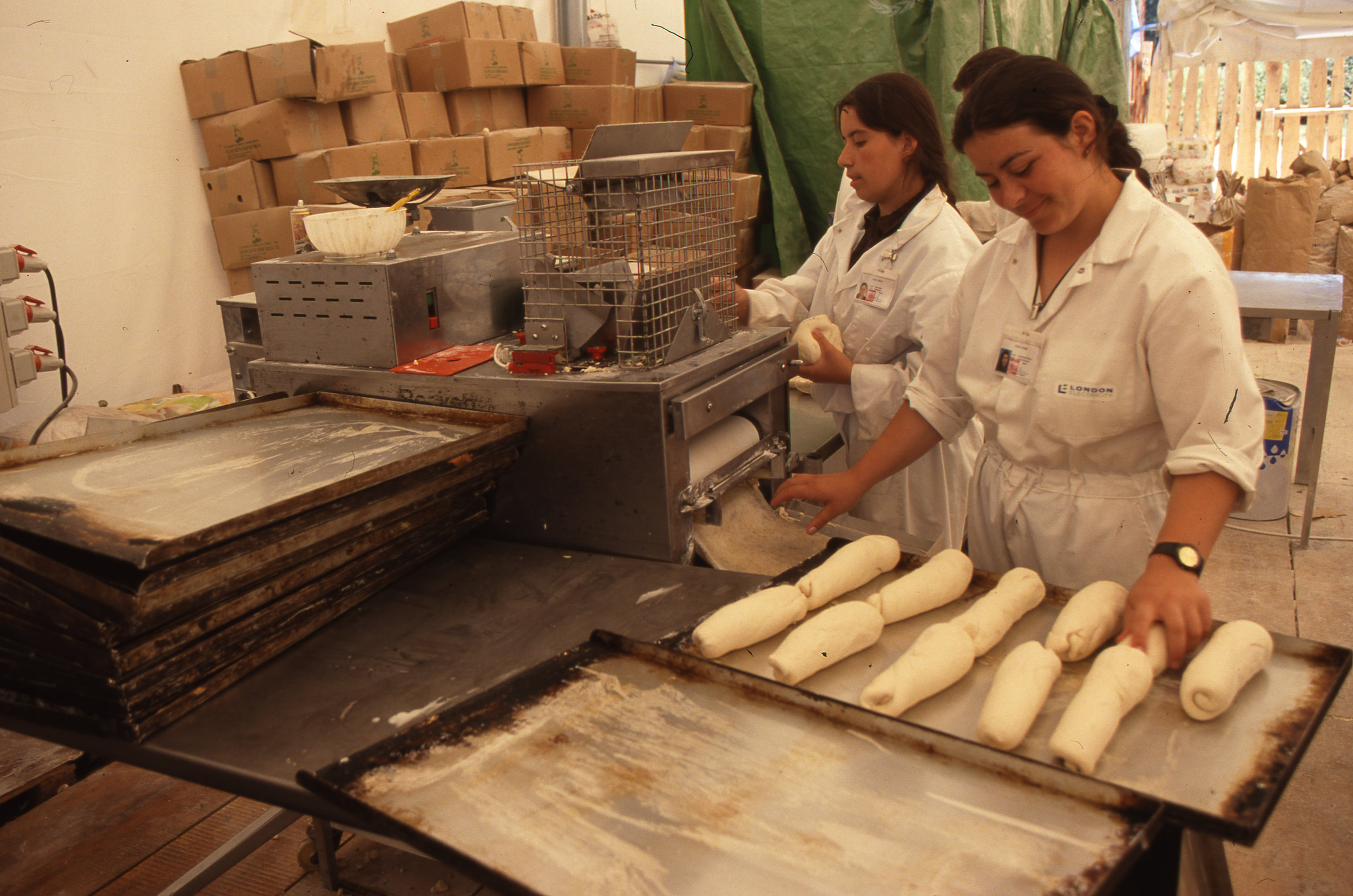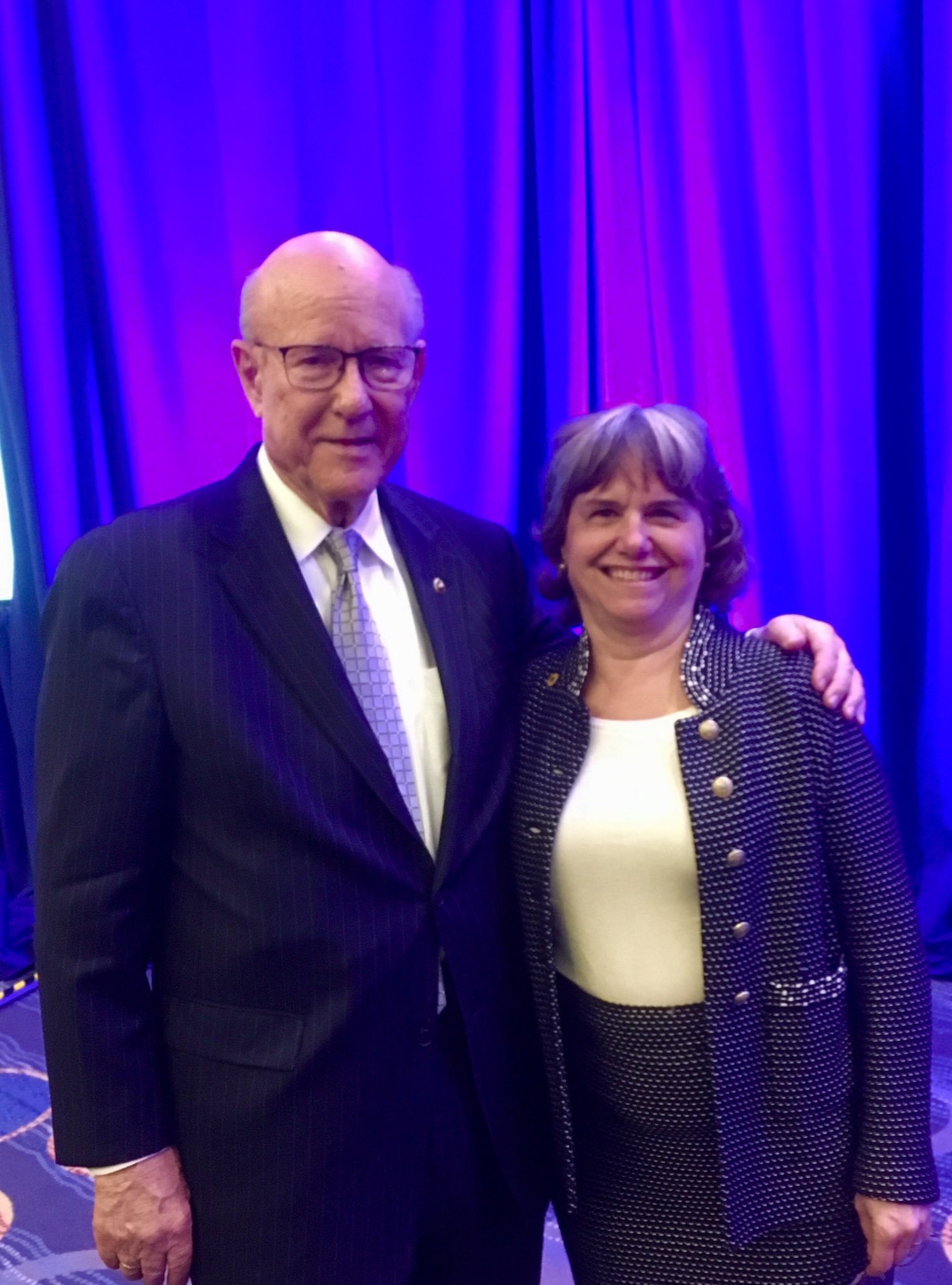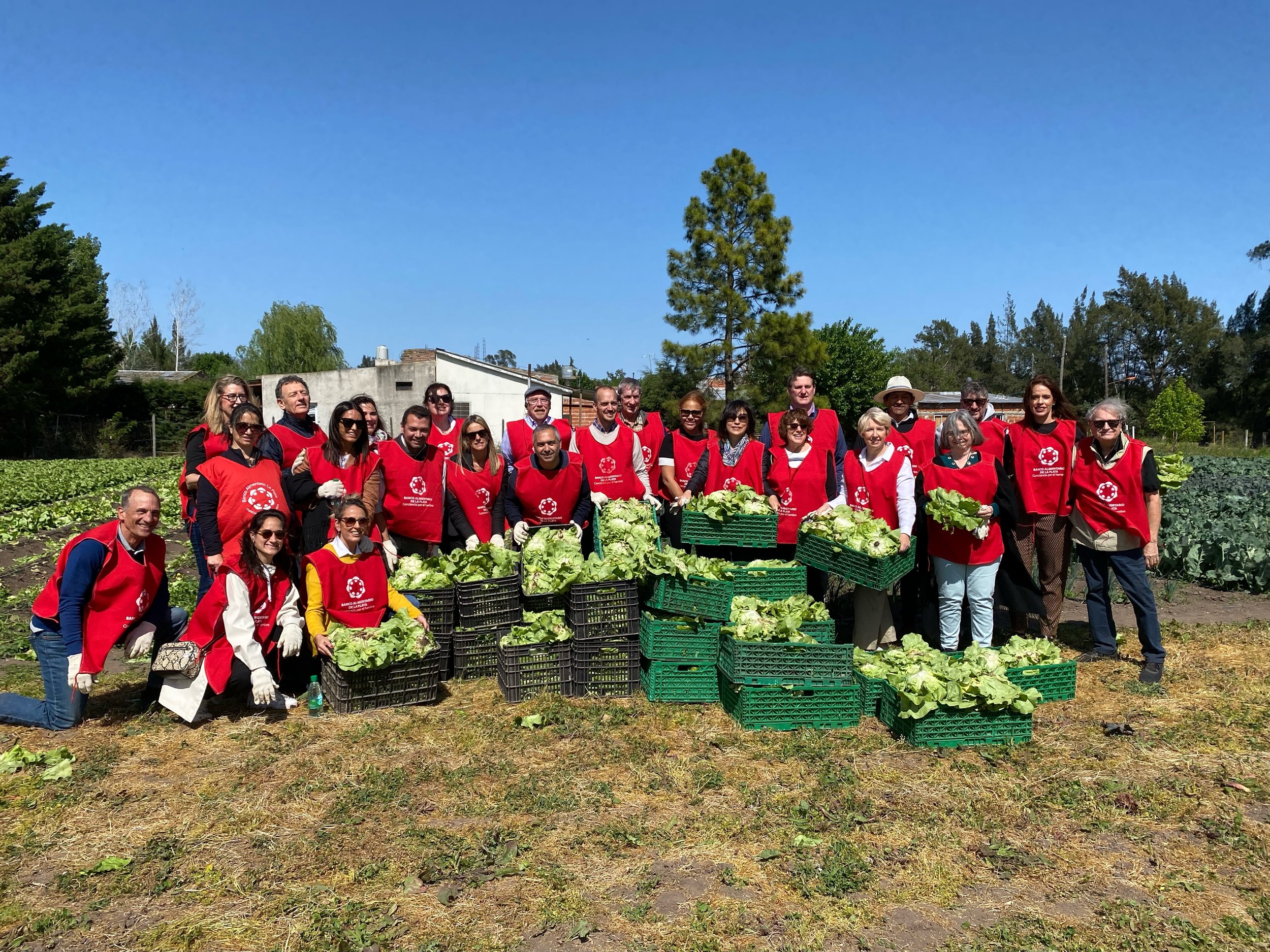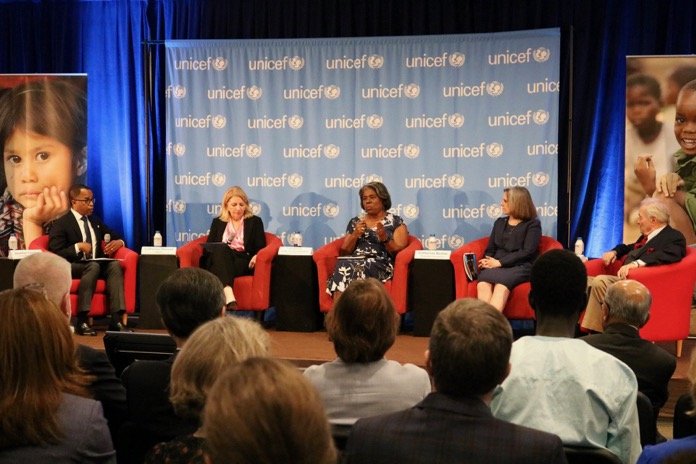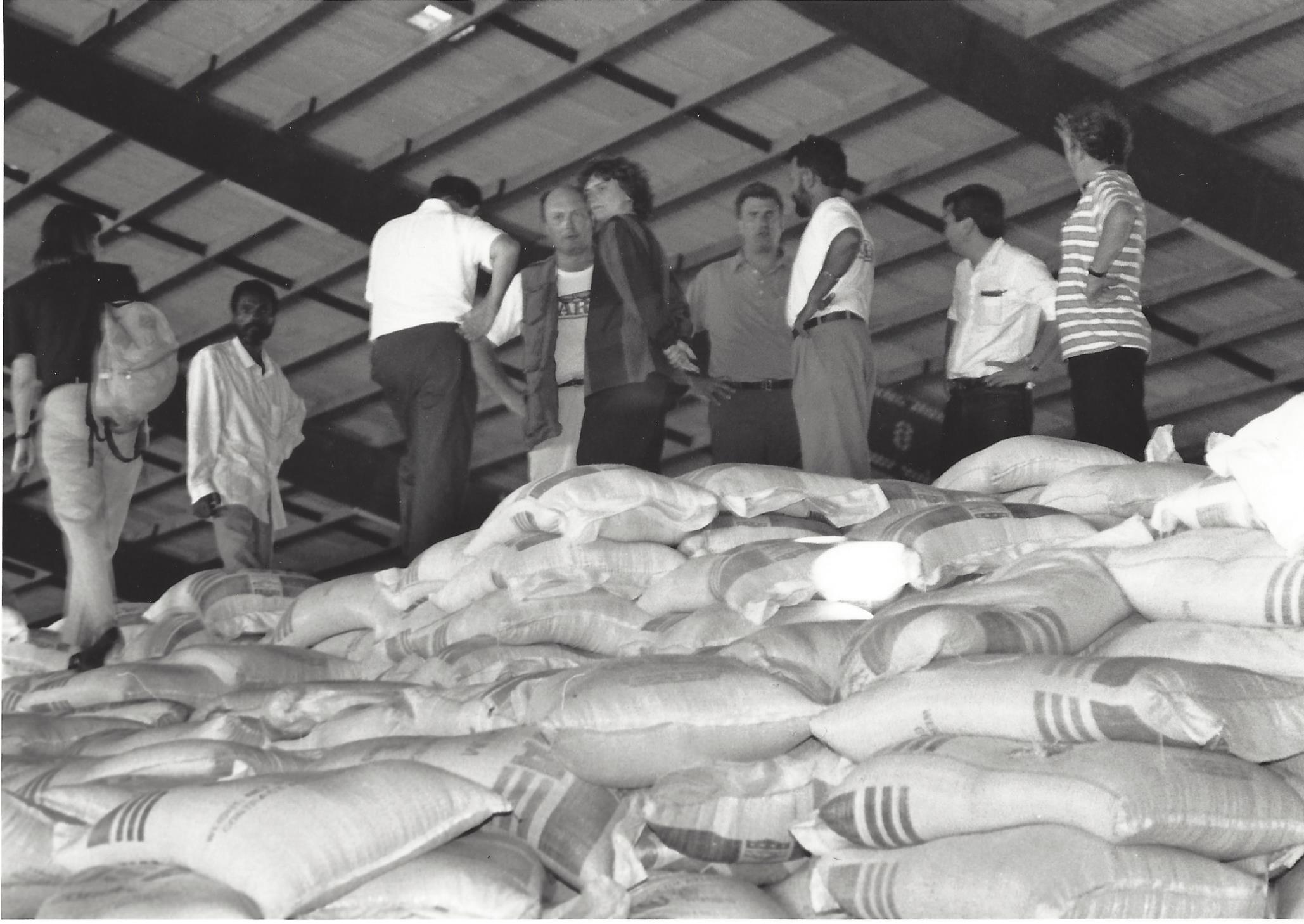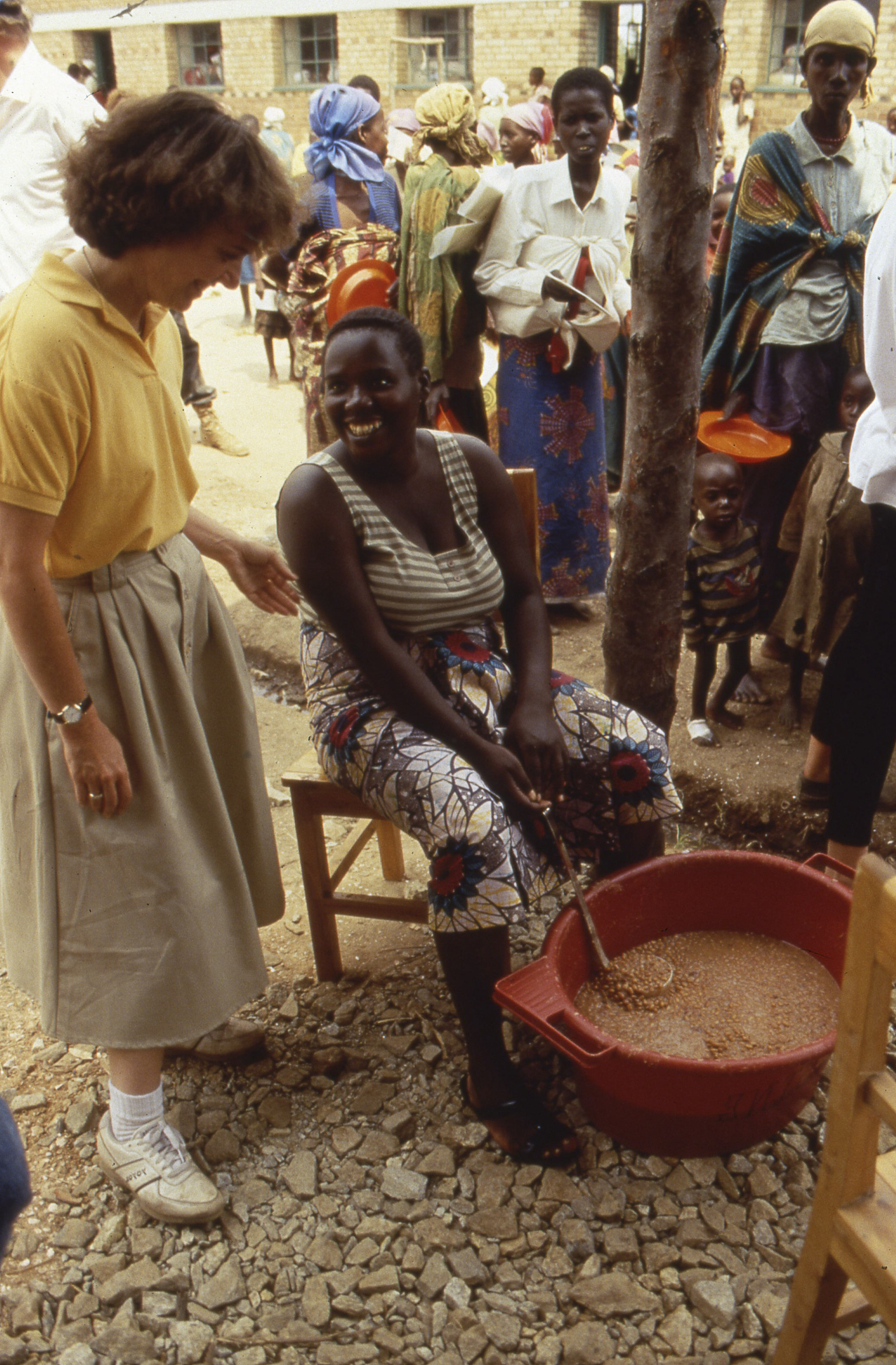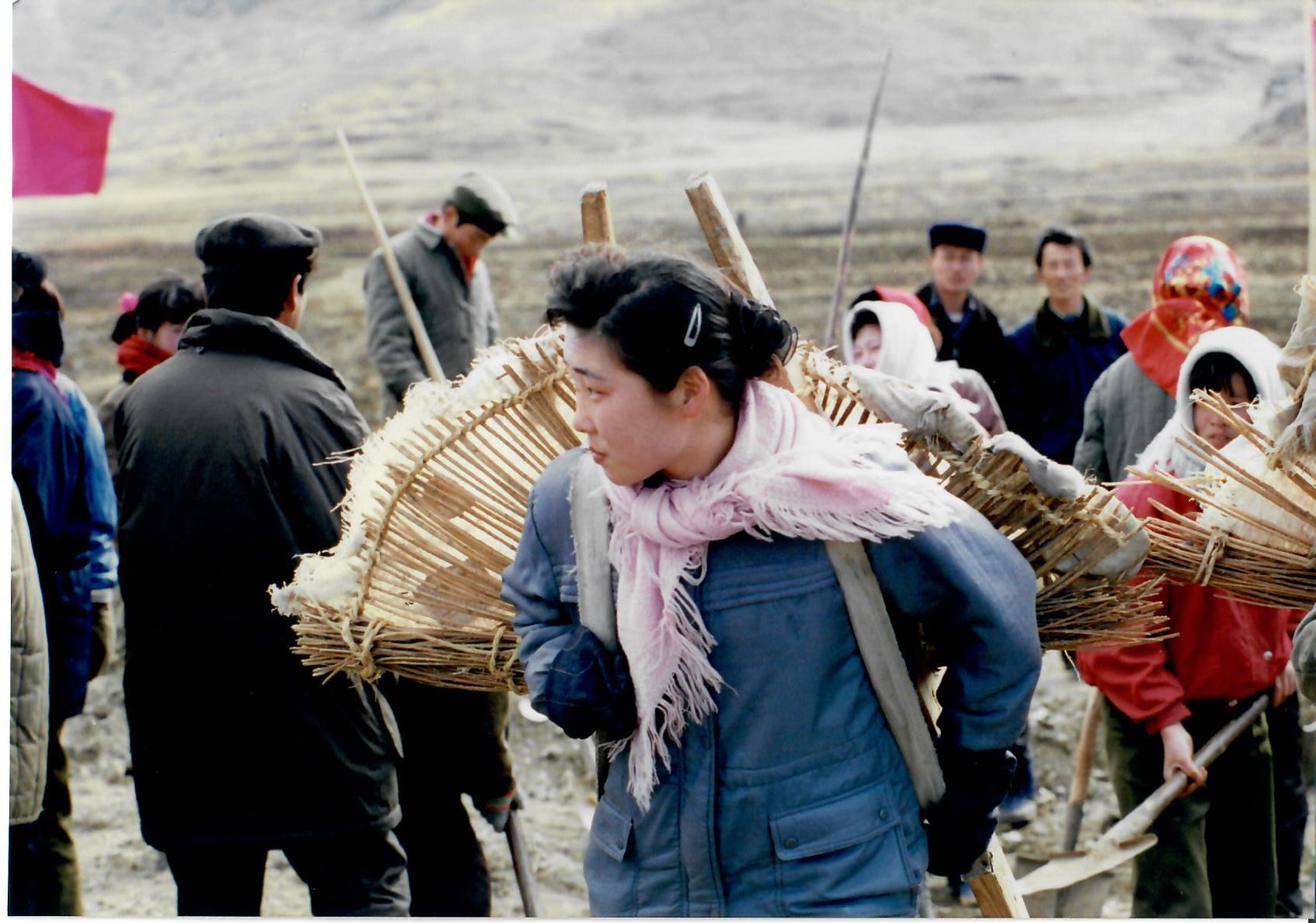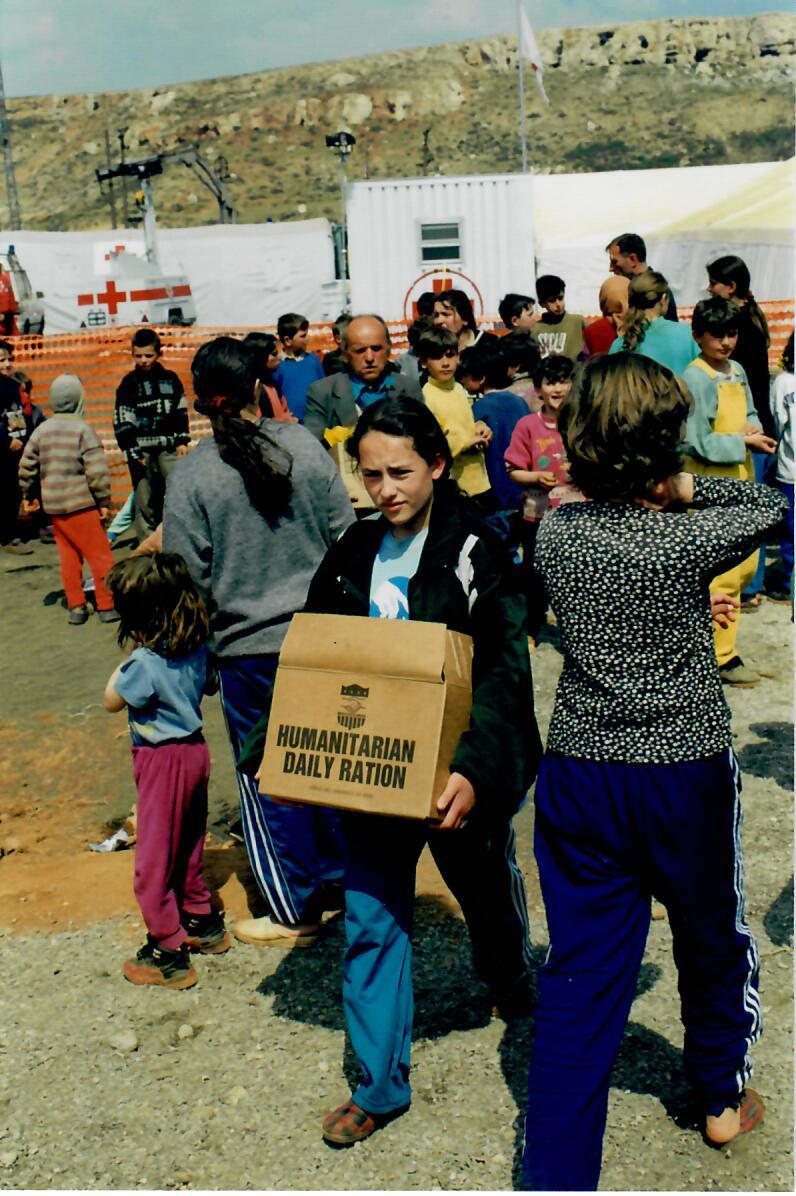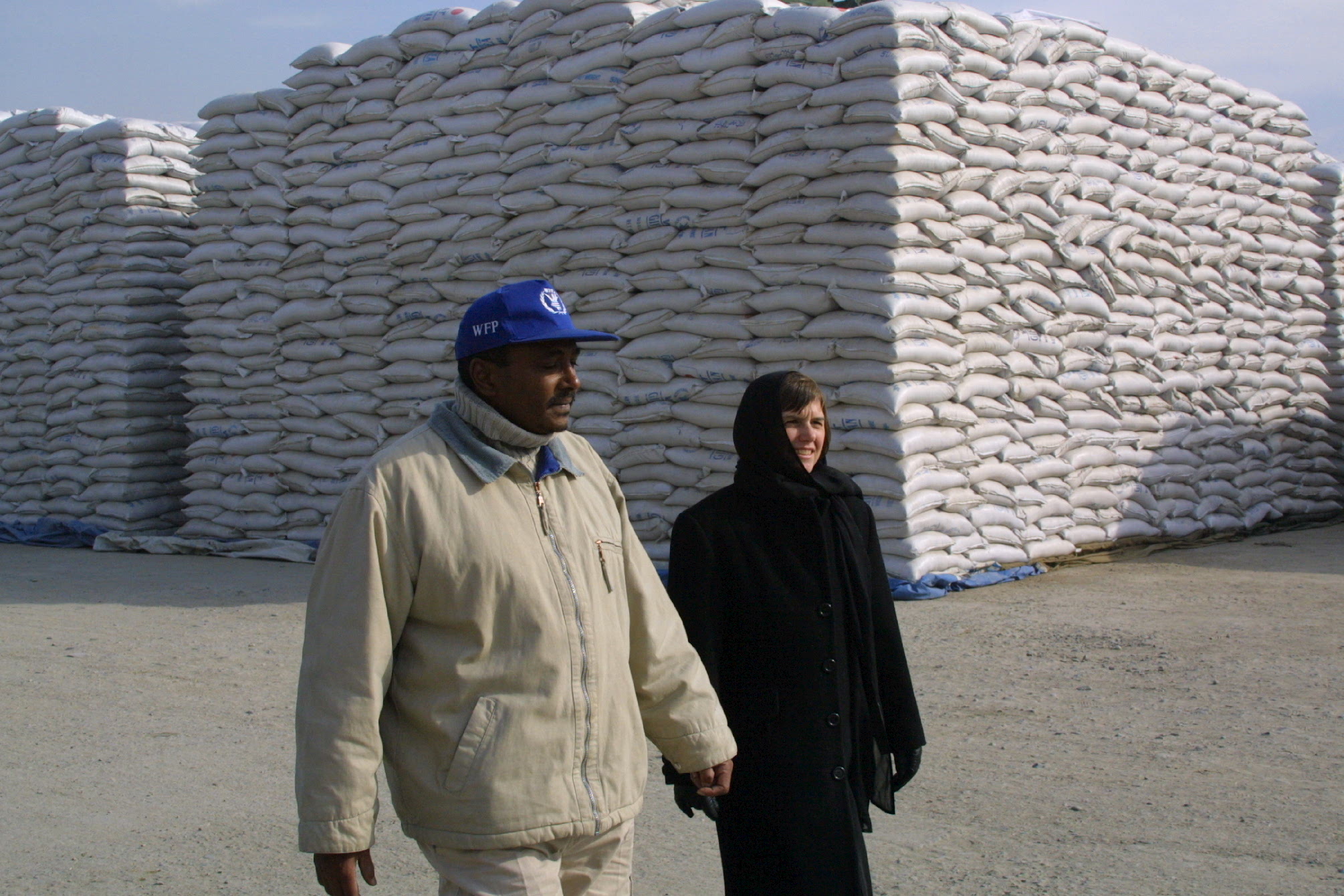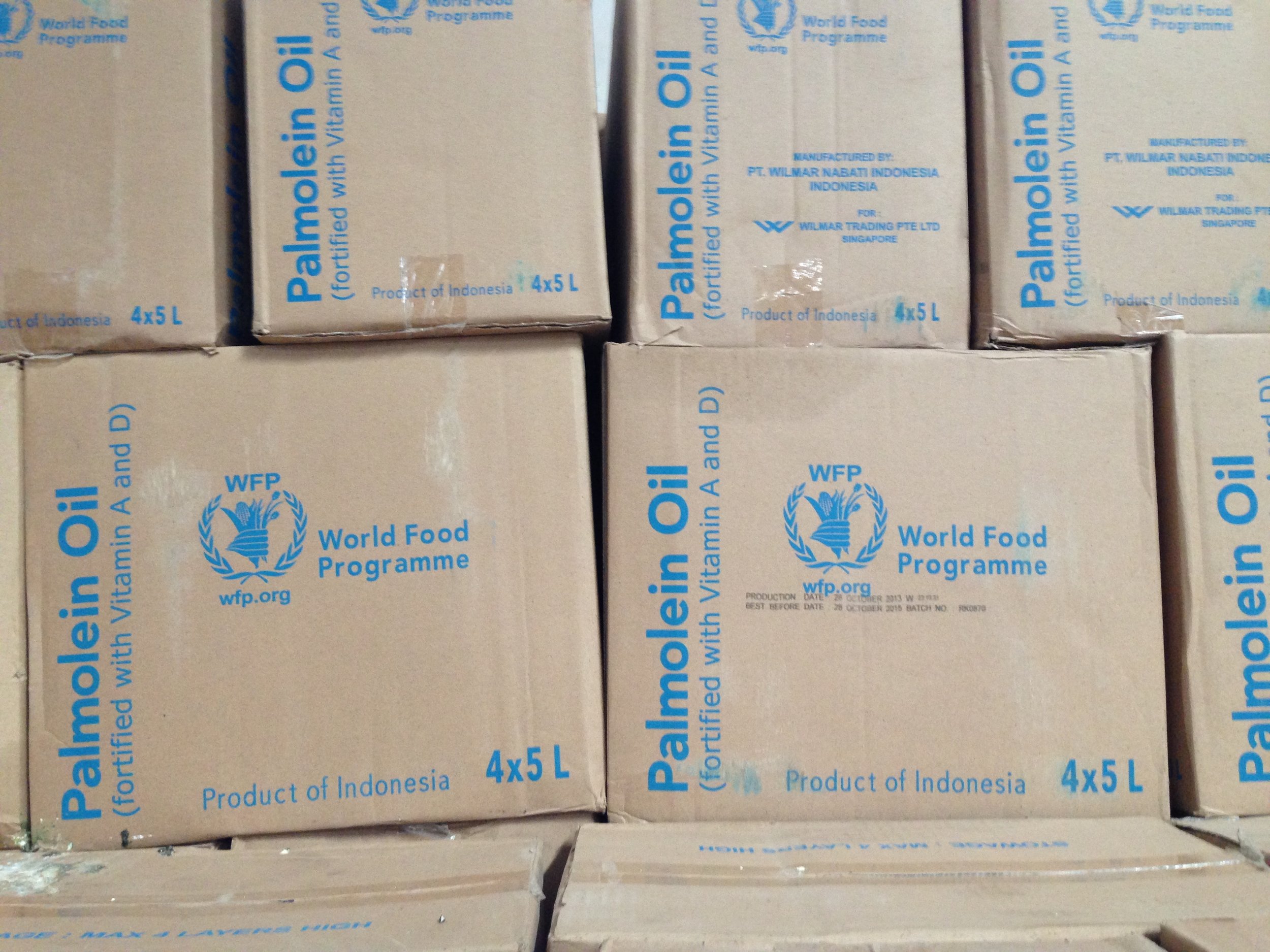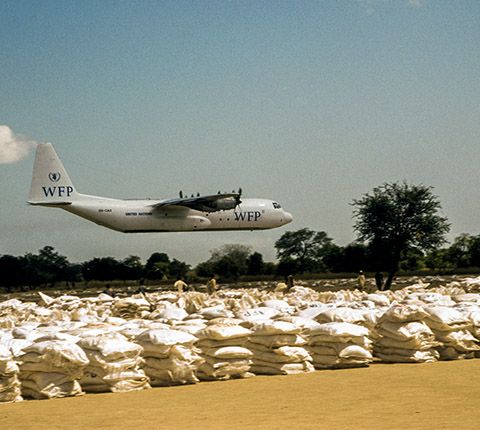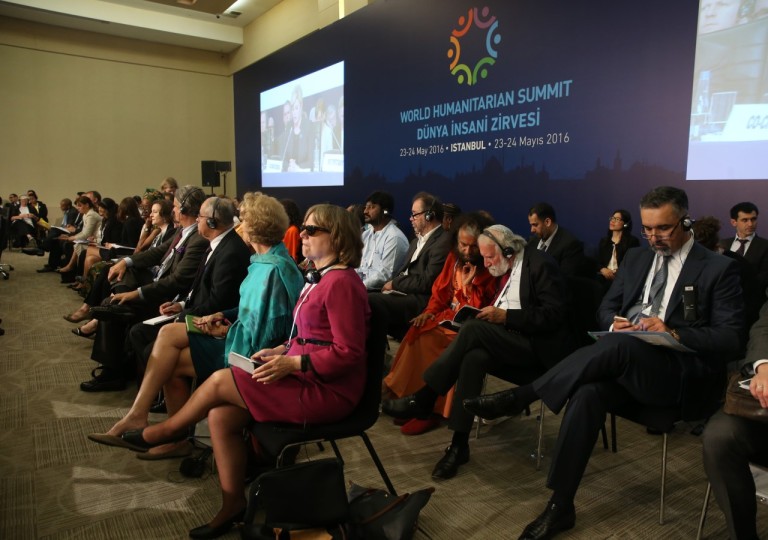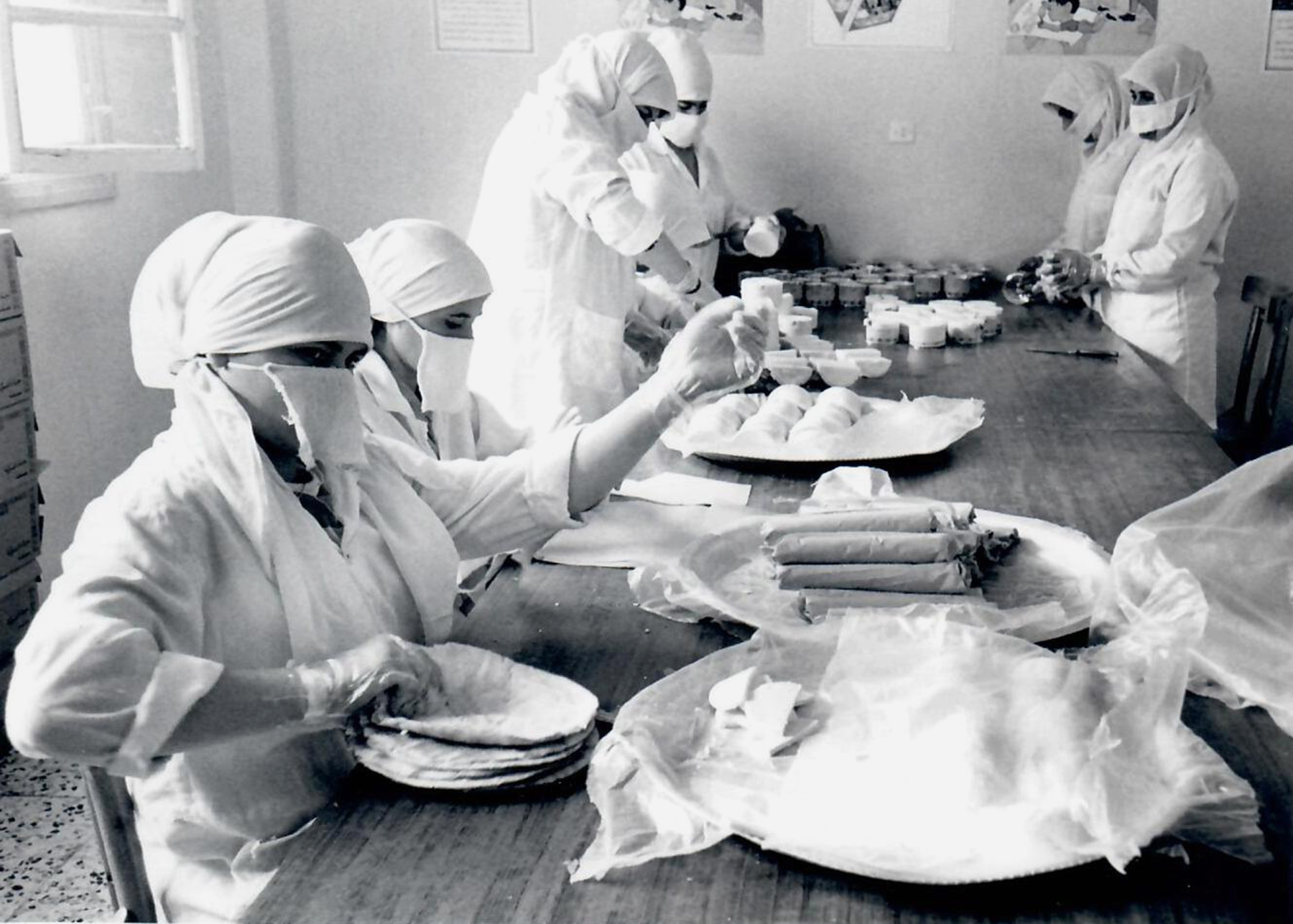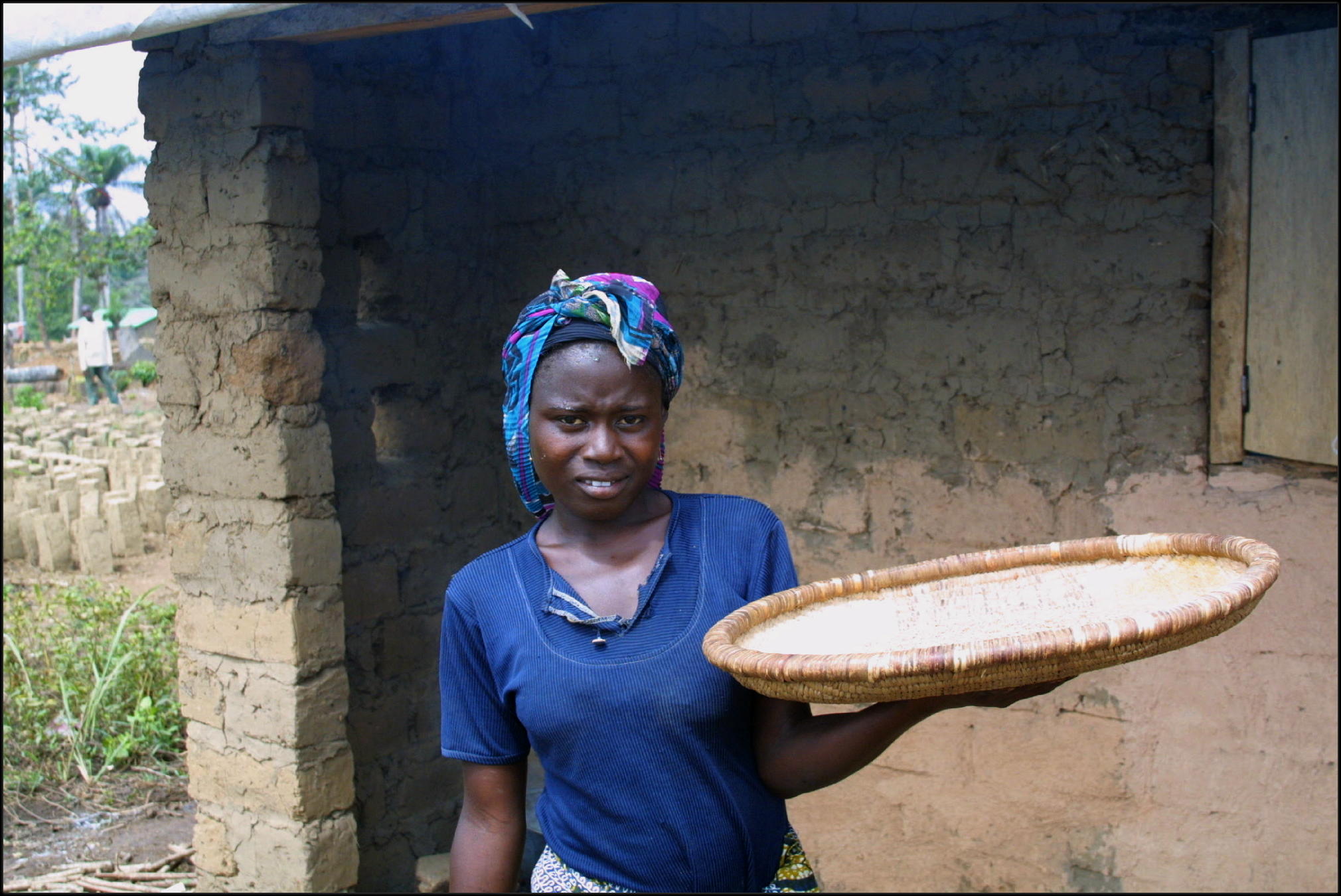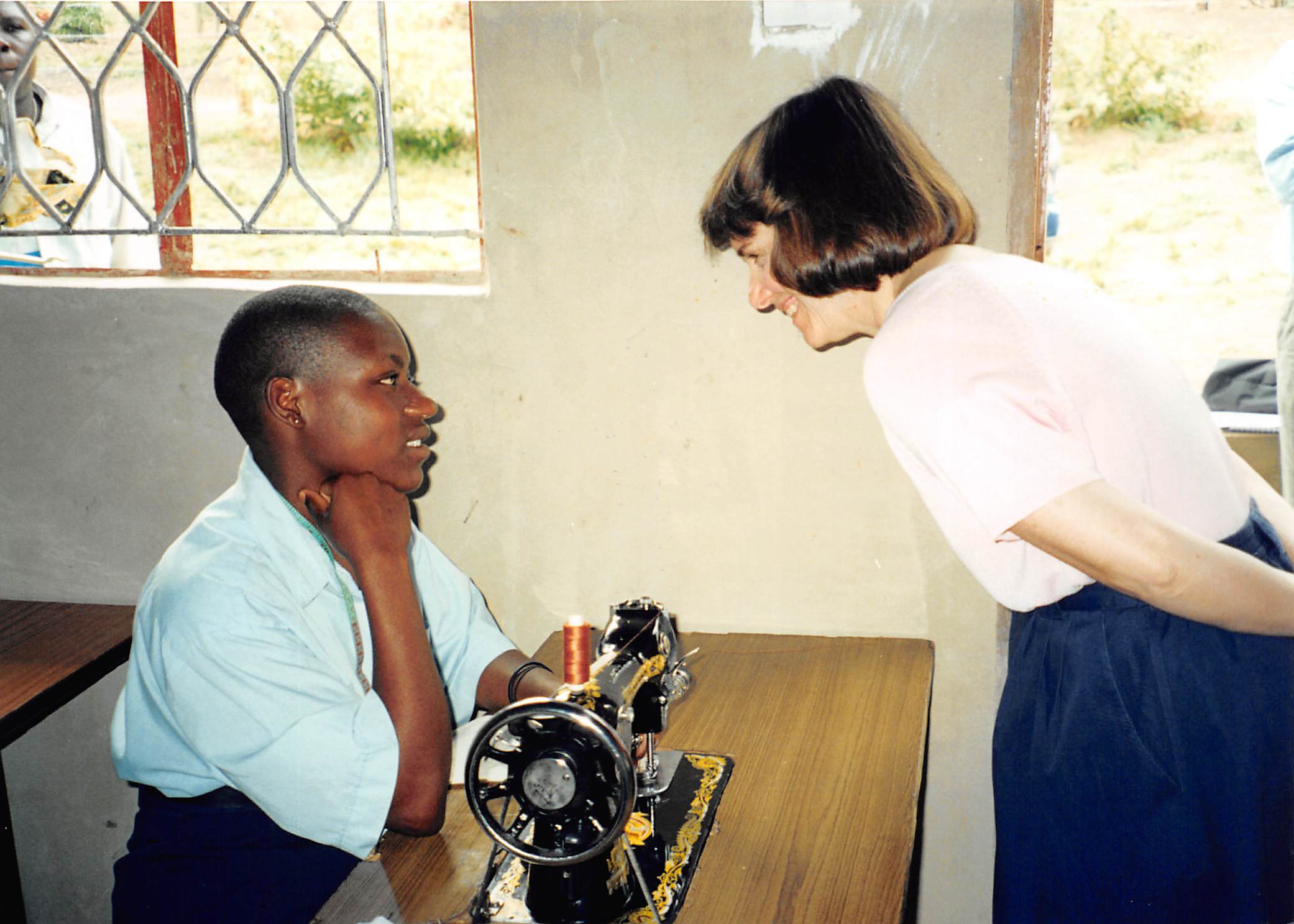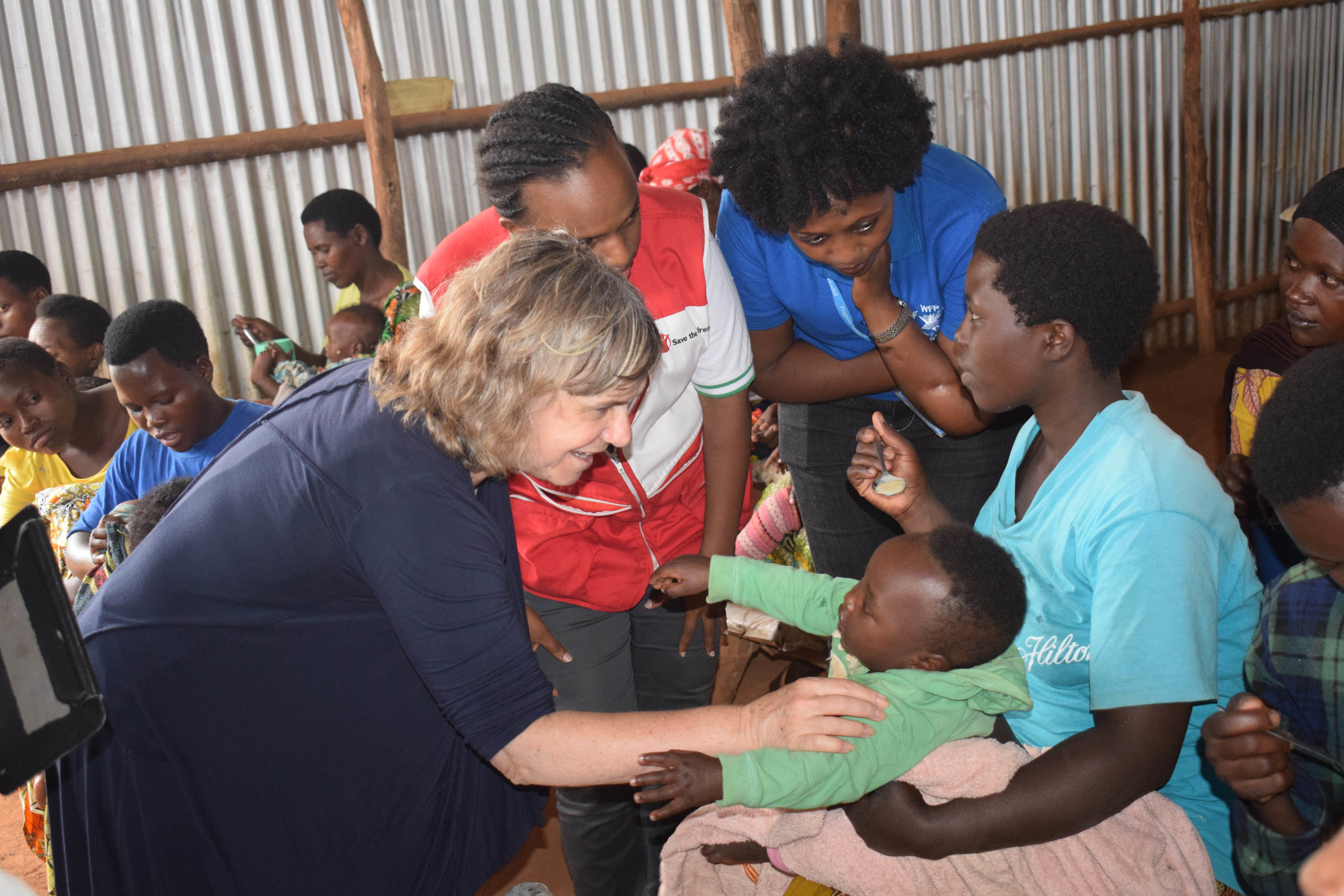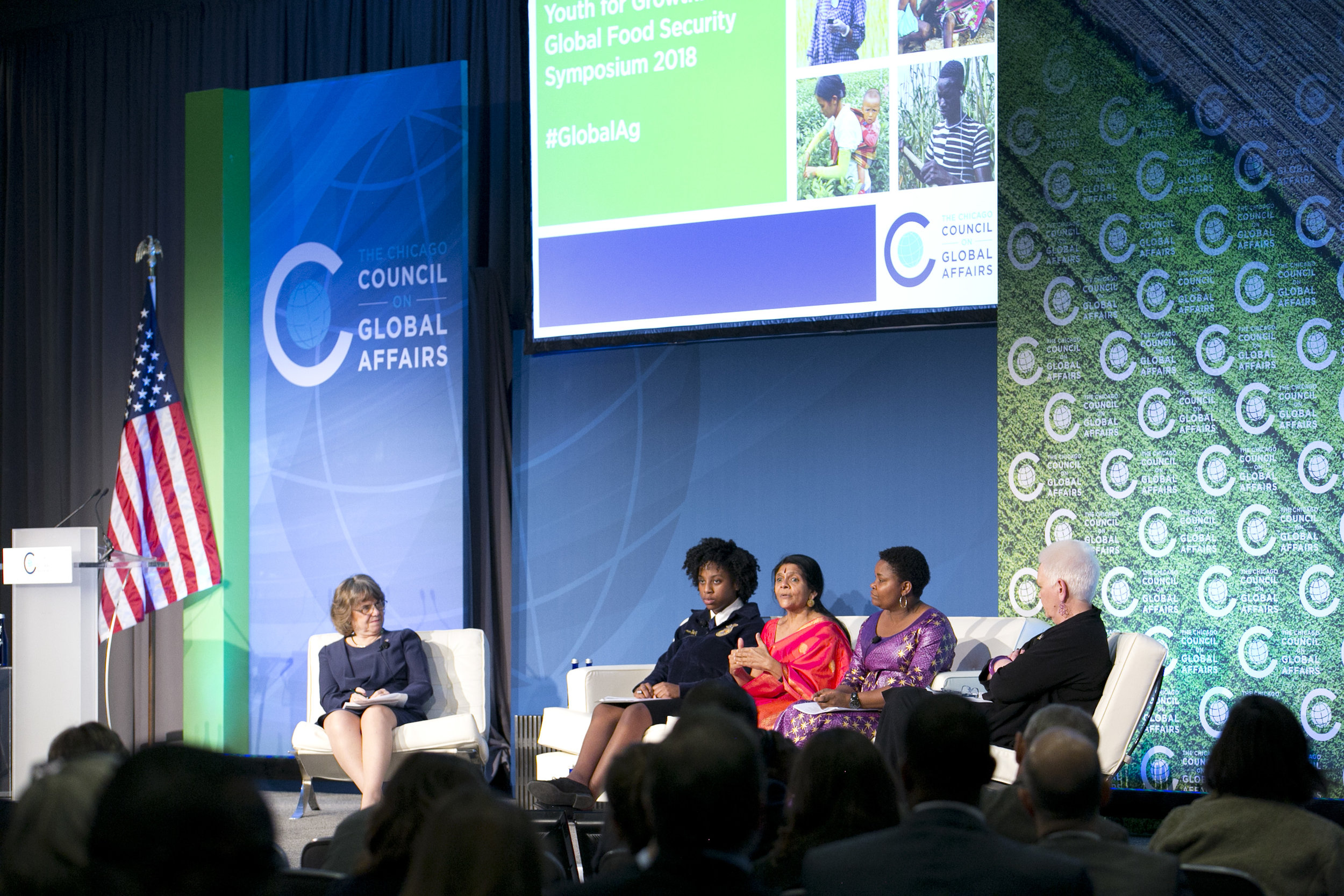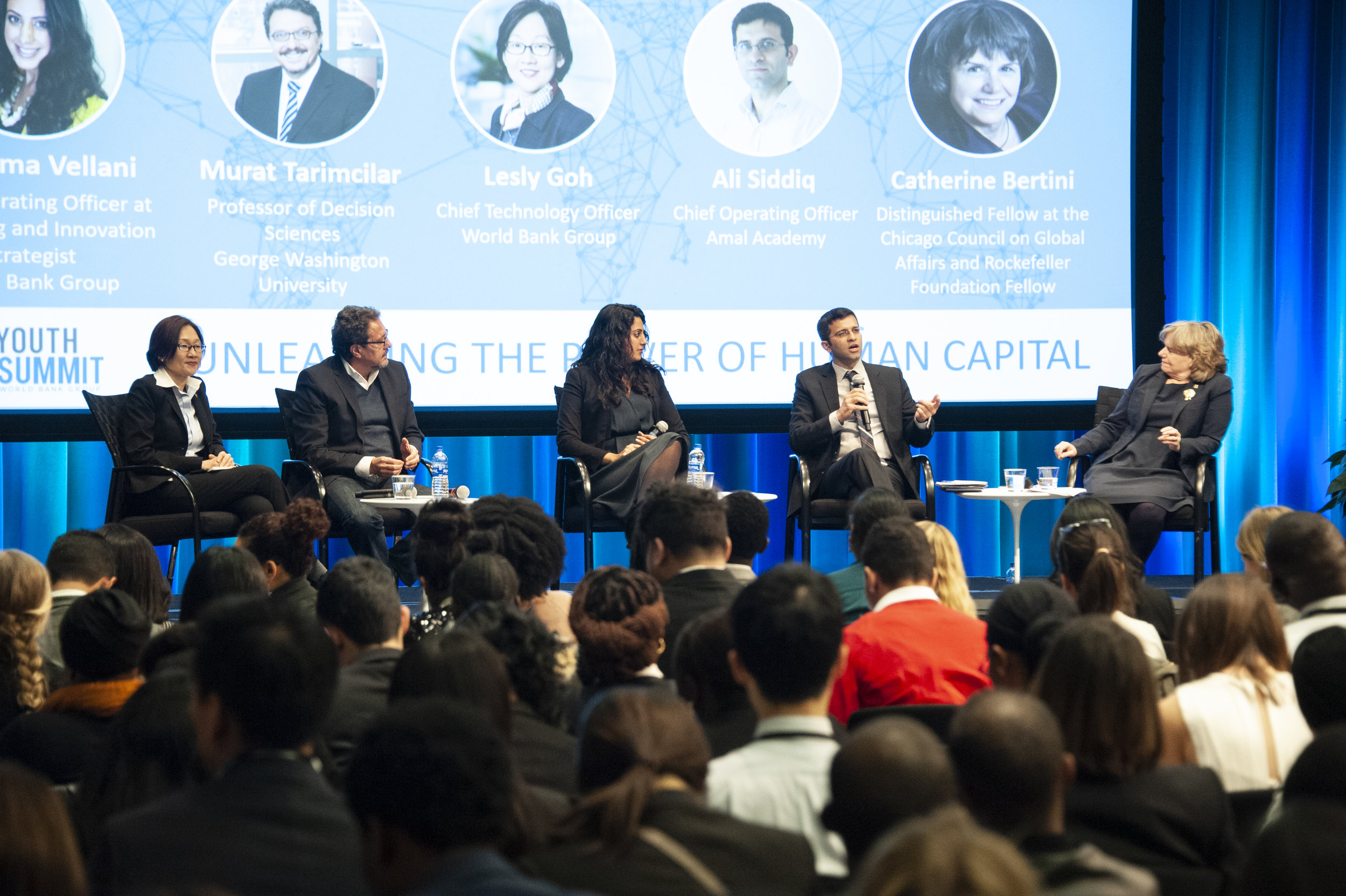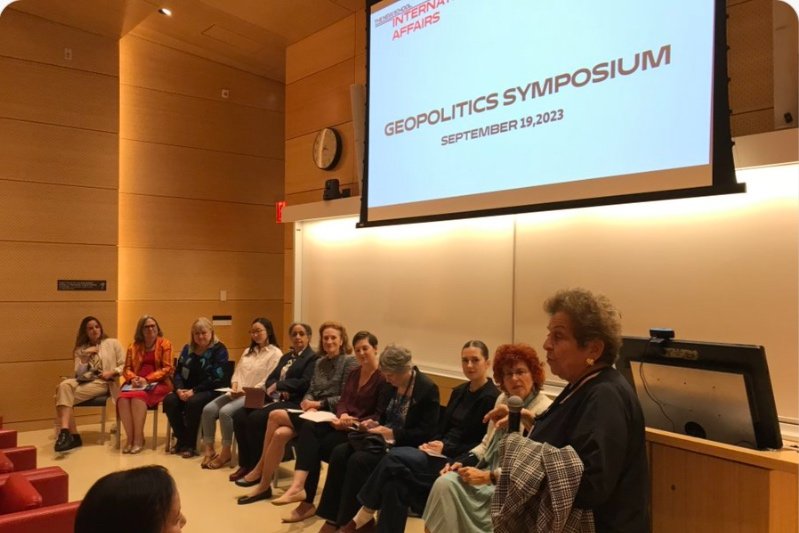Food Security
The global population is expected to grow as large as 9.8 billion by 2050. We must be able to produce more food, not only to feed larger numbers of people, but to provide more variety, protein, and nutritious foods. As people’s incomes rise, especially from poverty levels to modest incomes, they seek more diverse diets. Thus, future food production must improve in both quantity and quality, and of course, availability. Much of the potential for agricultural growth and opportunity is in the developing world. Supporting the hopes and needs of small holder farmers is a key to improving livelihoods, production, and economies.
ANTICIPATE AND LOCALIZE
The Rockefeller Foundation discusses leveraging humanitarian funding to create more sustainable food systems. (Catherine Bertini’s foreword: Page 4). April 2023.
Click here to read.
DEFINING THE PATH TO ZERO HUNGER IN AN EQUITABLE WORLD
During the 2022 World Food Prize Borlaug Dialogues, The Chicago Council on Global Affairs and The Rockefeller Foundation gather experts and stakeholders from climate, agriculture, food security, and humanitarian backgrounds to bring into focus the vision and probability of a 21st century with zero hunger. March 2023.
Click here to read.
“Fighting Hunger: Then and NOw”, KOFI TIME PODCAST, 2022
In episode 4 of Kofi Time, our special guest is Catherine Bertini. Ms. Bertini discusses how she worked with Kofi Annan to fight hunger and malnutrition around the world.
Not only is access to food far from universal, but it is also severely impacted by conflicts and climate change.
As food prices increase and access becomes even more challenging, how can we replicate Kofi Annan’s approach to improving food systems to make sure no one gets lefts behind on the path to food security globally?
Global Food Security Symposium 2022
Catherine Bertini and Ambassador Cindy McCain discuss action needed to meet unprecedented global food security crises arising from climate change, the pandemic, and conflict. (21 min.)
“Renewing American Leadership In The Fight Against Global Hunger And Poverty”, 2009
The Chicago Council of Global Affairs | View Here
Preview: The Global Agricultural Development Project's final report provides an objective assessment of the risks posed by rural poverty and food insecurity in sub-Saharan Africa and South Asia. It endorses a call to action for the United States government to work with governments and other institutions in those regions to increase agricultural productivity, market access, and incomes for smallholder farmers.
“Farm Futures: Bringing Agriculture Back to U.S. Foreign Policy”, foreign affairs magazine, 2009
Catherine Bertini and Dan Glickman | View Here
Preview: The traditional approach to development—attacking poverty and assuming that rising incomes will take care of hunger—has simply not worked well enough. Developing countries must take the battle to where the problem lives: rural farming communities that often have little connection to markets, even domestic ones, and, as a result, have not profited from traditional investments in development.
Girls' Education
There is nothing more important than insuring that all girls are educated, because an educated female population impacts positively on every other aspect of society. Educated women are healthier and have heathier children; their children are more likely to go to school; they start their families later and give birth to fewer children and, because their husbands are closer to their own age, they are less likely to contract HIV/AIDS. Educated women have better, higher paying jobs, they are more successful farmers, and they contribute considerably more economically to their families, communities, and indeed, to their countries.
Catherine Bertini is passionate about this issue. She taught a graduate course on Girls Education in the Developing World at the Maxwell School at Syracuse University; many of her former students have created schools for girls and been involved in literacy projects. When Bertini became the World Food Prize Laureate in 2003, she asked that the entire $250,000 prize be used to create a fund to support this mission. The World Food Programme matched that contribution and many others have donated. The fund has supported girl’s education and women’s literacy projects around the world.
WOMEN AND CHILDREN AS CHANGE AGENTS: THE GLOBAL MANDATE FOR GIRLS’ EDUCATION
Chicago Council on Global Affairs | View Here
Preview: A report written by Catherine Bertini and Alyssa Ceretti demonstrating the idea that educating girls has the power to break the cycle of poverty and transform societies.
Educate Girls: The 2003 World Food Prize Laureate Lecture
World Food Programme | View Here
Preview: Children in the developing world spend almost all of their time with their mother, so why doesn't it make more sense that the adult that they spend the most time with is going to have the most impact on them? If that person is educated, it does have a lot of impact on the children.
Catherine Bertini Trust Fund for Girls' Education
The Catherine Bertini Trust Fund for Girls’ Education improves access to training and education for girls by supporting innovative efforts to reach and empower girls. As the host of this initiative, World Food Program USA stewards the evolution of the Fund based on Ms. Bertini’s vision. Click this link to donate.
Catherine Bertini Fund Grants Put Girls on the Road to Success
Chicago Council on Global Affairs | View Here.
Preview: After 10 years leading the UN World Food Programme, Catherine Bertini decided to tackle a major root cause for food insecurity—lack of education. She launched the Catherine Bertini Trust Fund for Girls Education from the funds of her 2003 World Food Prize. Believing that enhancing women’s education had the potential to transform societies, Bertini established the fund to improve girls’ access to education worldwide.
Nutrition
Ensuring that people throughout the globe have adequate nutritional access is key to improving health outcomes worldwide. Having the right foods at the right time is critical to a person’s health. For instance, pregnant women must have access to appropriate diets in order to give birth to healthy babies. Children, at least through age two, cannot grow properly – physically or mentally – without adequate diets. Children and adults must consume balanced diets or risk obesity. Trend lines are such that the numbers of obese people in the world will soon overtake the numbers of those suffering from undernutrition.
“Best Practices in Nutrition Science to Earn and Keep the Public’s Trust” - 2019
American Journal of Clinical Nutrition | View Here.
Preview: Public trust in nutrition science is the foundation on which nutrition and health progress is based, including sound public health. An ASN-commissioned, independent Advisory Committee comprehensively reviewed the literature and available public surveys about the public's trust in nutrition science and the factors that influence it and conducted stakeholder outreach regarding publicly available information.
Humanitarian Action
Millions of people struggle every day just to exist – some due to wars and internal conflicts, some who are overcome by floods or droughts or earthquakes, and most because they live in desperate poverty.
Humankind has reached out to help others for centuries. This work became more organized and international once Swiss businessman Henri Dunant created what is now the International Committee of the Red Cross (ICRC) in 1863. Today there are multiple United Nations organizations, Non-Governmental Organizations, the Red Cross Movement and individuals and governments who act urgently to help those in need.
Their dynamic is constantly changing as individuals live through shifting challenges. Providing food, shelter, water, education, health care, security, protection is key and listening to and interacting with those in need is essential. All of this work is voluntarily funded, which means agencies are constantly reaching out to governments, foundations, the private sector, and individuals to support their efforts to keep people alive.
“Food Aid for the 21st century”
Catherine Bertini and Dan Glickman for Politico | View Here.
Preview: When it comes to providing hunger relief to needy people around the world, the United States has been a leader since World War II. And if early reports about the Obama Administration’s 2014 budget are true, then the U.S. will have a golden opportunity to provide even more food to the hungry while spending less taxpayer dollars in the years ahead.
Gender
Understanding gender roles and expectations is key to appreciating a culture and critical to creation of any program that is designed to improve the well being of individuals in a community. For instance, at WFP, the mission was to "End Hunger, " but family members only alleviate hunger if they eat food that someone cooks; most often, the cook is a woman or girl. Understanding the needs of cooks, then, became crucial to successfully providing the correct food options. That required listening to cooks/women, which required having communications opportunities, which also required recruiting enough women staff members to achieve the goal of communication and thus, of more effectively ending hunger. Ultimately, this is also key to women's empowerment.
CIMMYT Catalysts of change seminar: Women leaders in science
CIMMYT | View Here
Preview: CIMMYT strives to provide more opportunities to hear from women leaders about their life journeys, lessons, and insights. They seek to highlight women who are leaders in all sorts of capacities, fields and disciplines, because they believe that leadership styles can take many different forms. Here they highlight Catherine Bertini, as she discusses women leaders in science.
“Girls Leading: From Rural Economies to Global Solutions”
The Chicago Council of Global Affairs | View Here
Preview: Many of the most pressing global issues—climate change, economic development, health, and education—demand that we consider rural girls. The world changes as her life changes. Join the conversation at #GirlsLeading.
“INvisible Women”
The American Academy of Arts and Sciences | View Here.
Preview: Women are ubiquitous and critical to the nutritional well-being of their families, yet they are often invisible to policymakers, public officials, community leaders, and researchers. Effecting significant decreases in the number of hungry poor people, as well as the improvement of nutritional and economic outcomes, requires policy in addition to operational and research priorities that are directed at the needs of women and girls.
“Girls Grow: A Vital Force in Rural Economies”
The Chicago Council of Global Affairs | View Here
Preview: If you want to change the world, invest in an adolescent girl. An adolescent girl stands at the doorway of adult-hood. In that moment, much is decided. If she stays in school, remains healthy, and gains real skills, she will marry later, have fewer and healthier children, and earn an income that she’ll invest back into her family.
Governance
Effective, transparent, responsive governance structures are key to delivery of benefits to people in great need. Continual review and reform is essential for international humanitarian organizations to insure the most impactful programs are available to assist millions of people living in life threatening circumstances throughout the world.
“Leading Change in UN Organizations”
The Chicago Council on Global Affairs | View Here
Preview: This paper provides guidance for new leaders through various stages of the early days of UN leadership; from preparations made upon appointment to the position to the first 100 days in office and finally through the assessment, planning, and implementation of transformational organizational change. It was written with input from many former and current senior UN leaders in hopes of providing valuable advice, insight, and lessons learned that can be used by new leaders as they embark on their challenging and rewarding mission to change lives and change the world.

